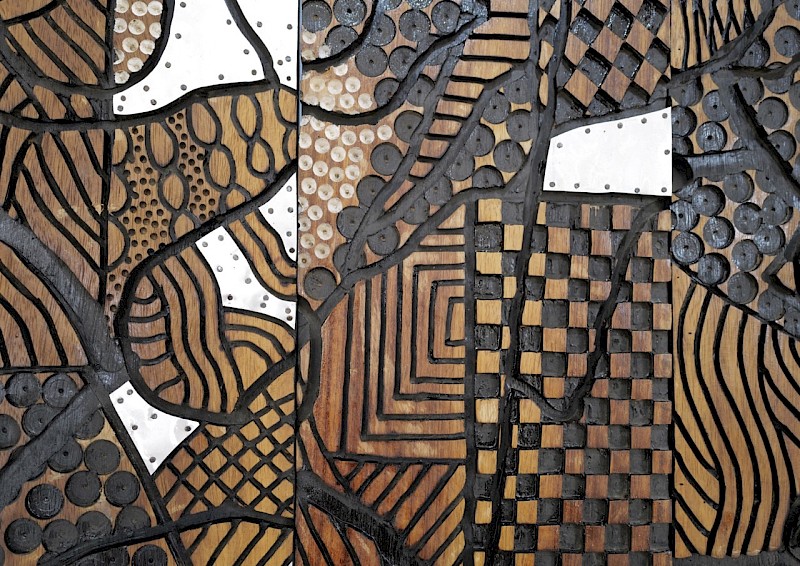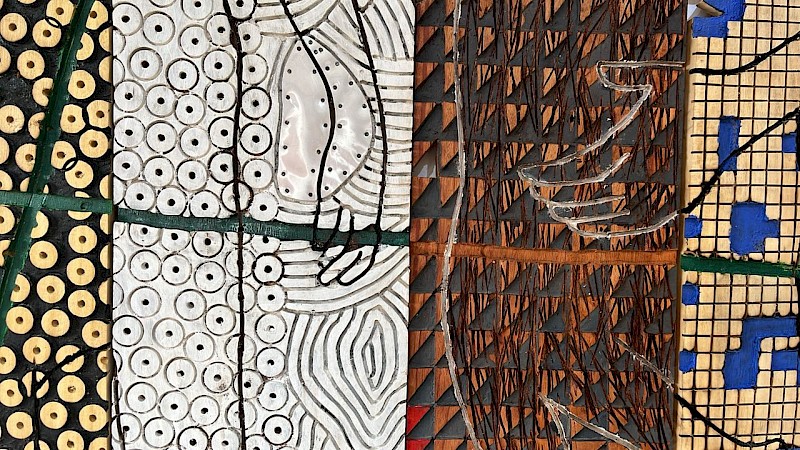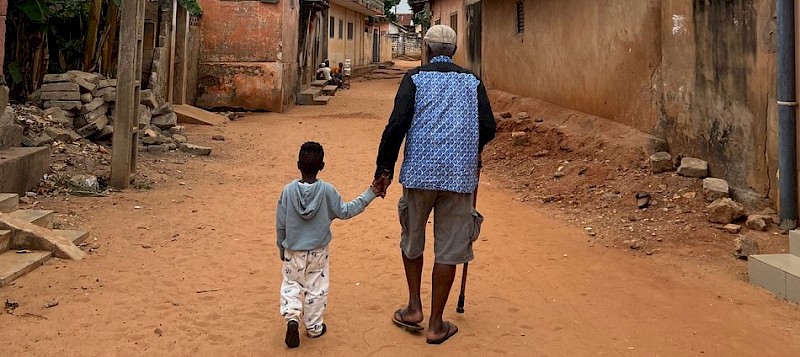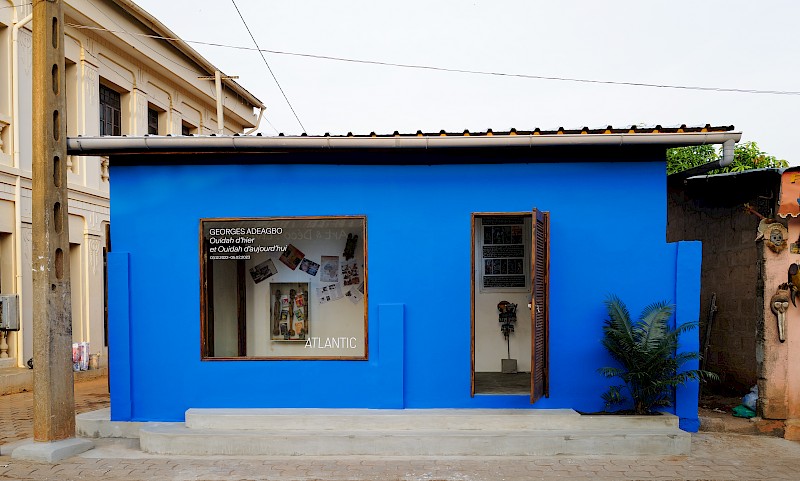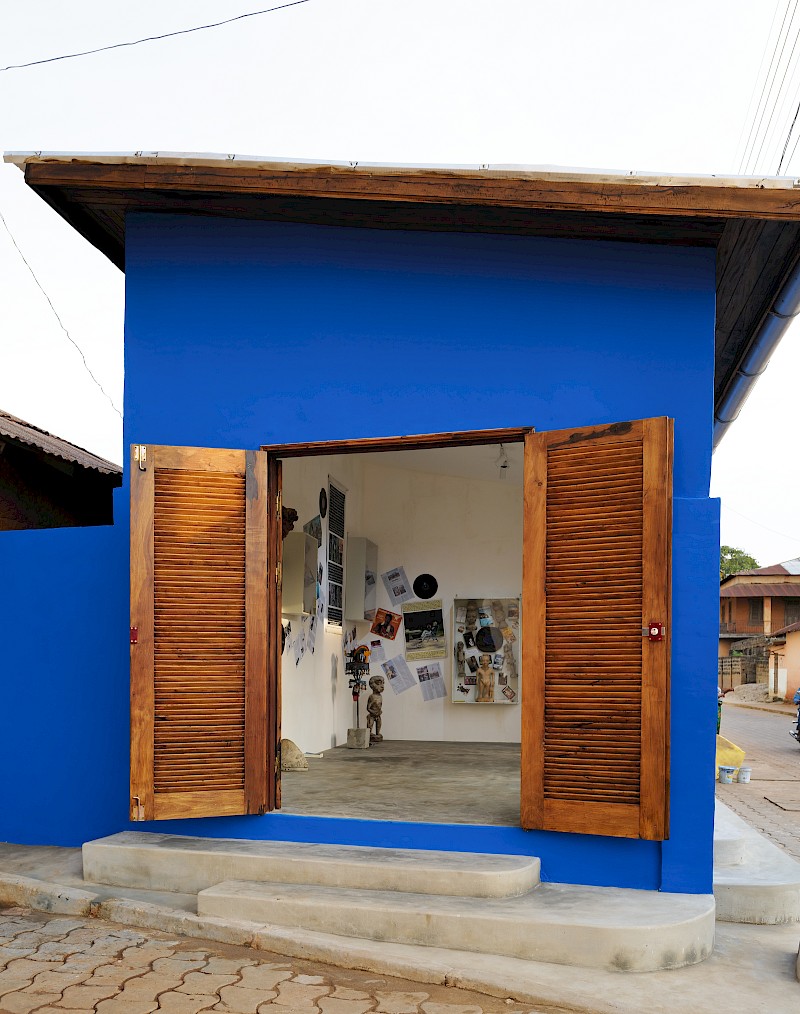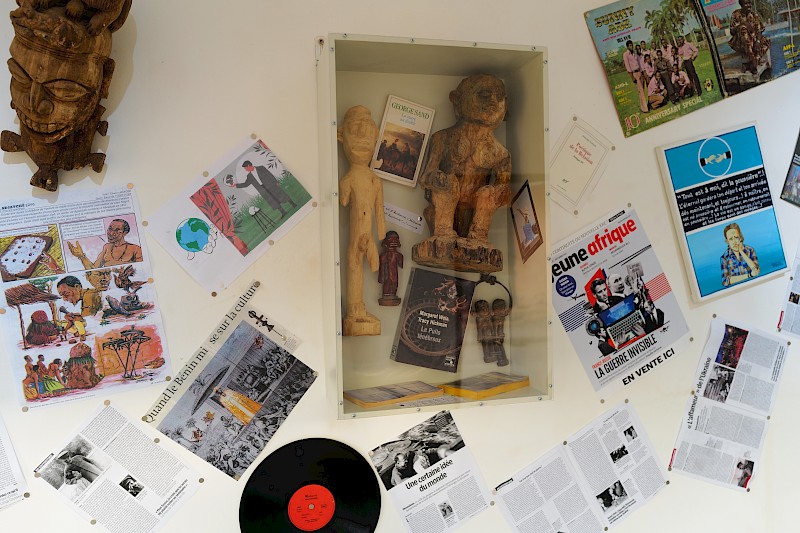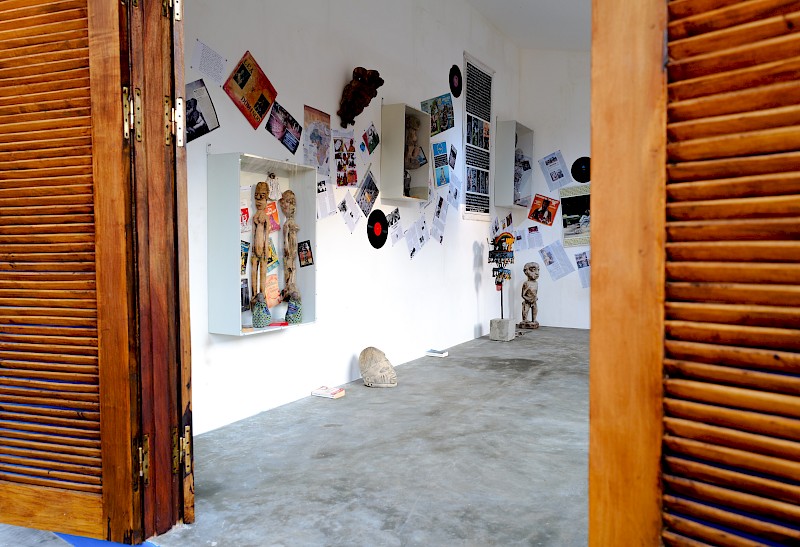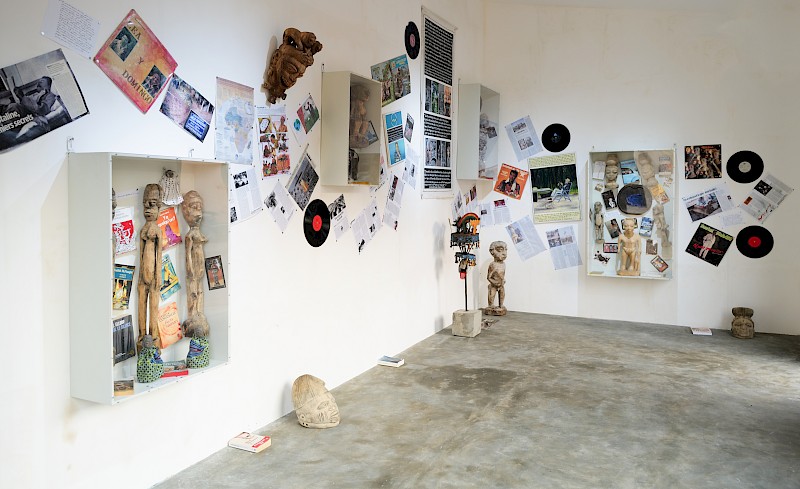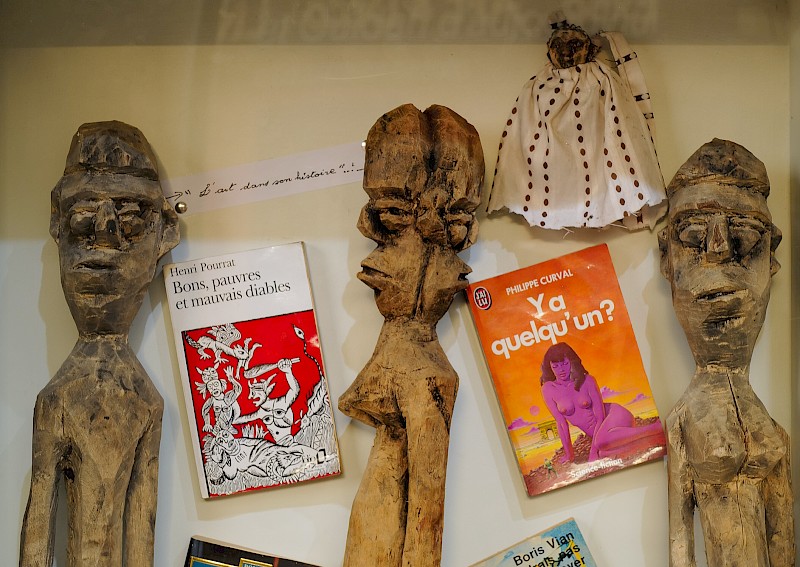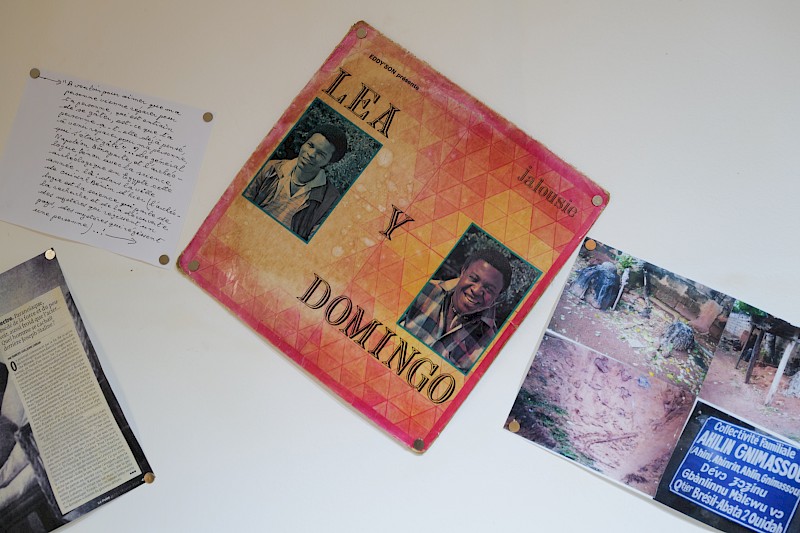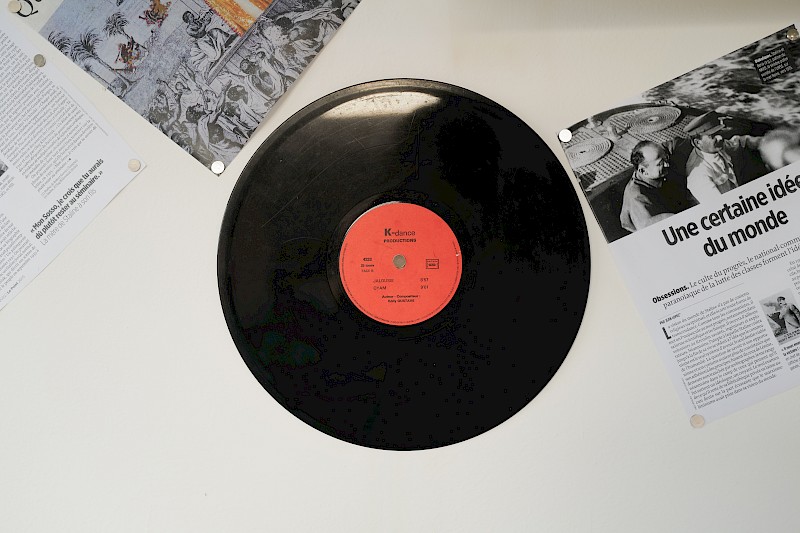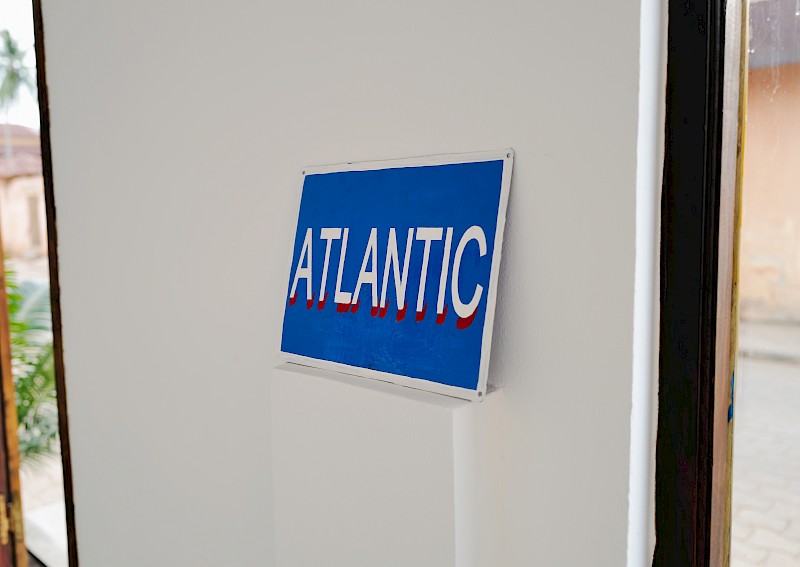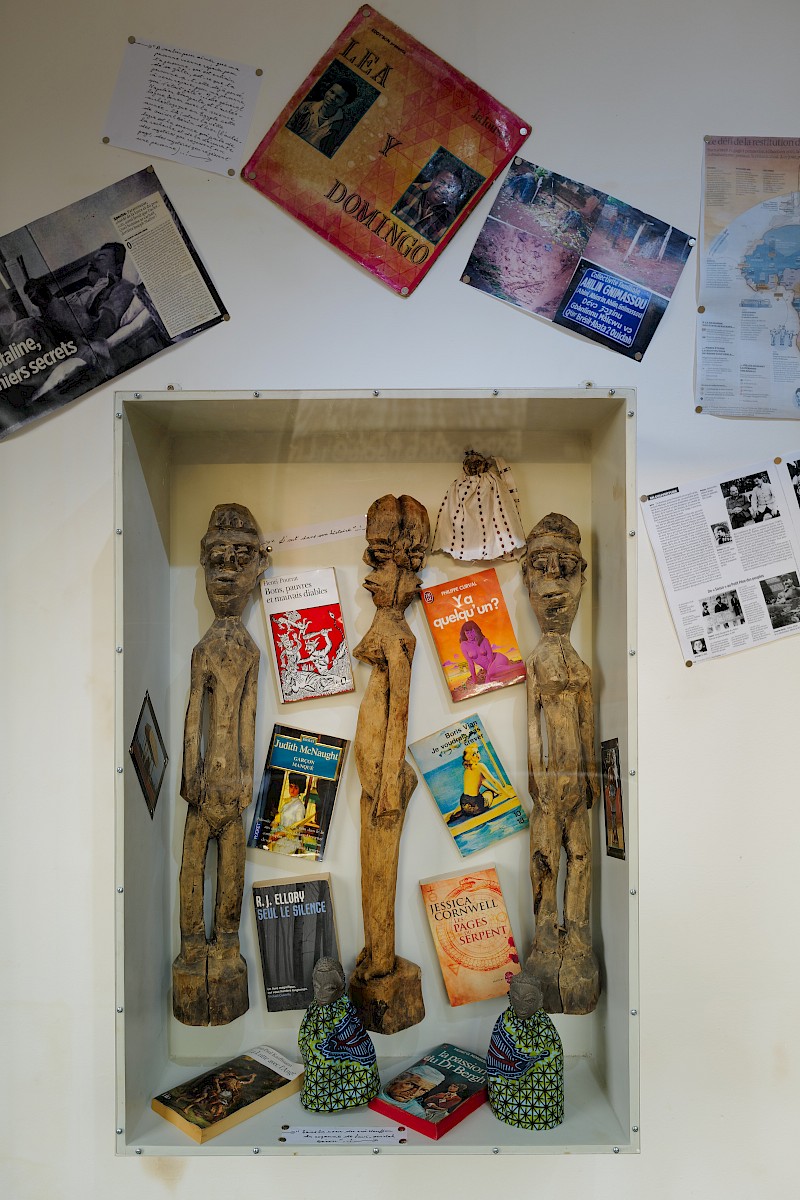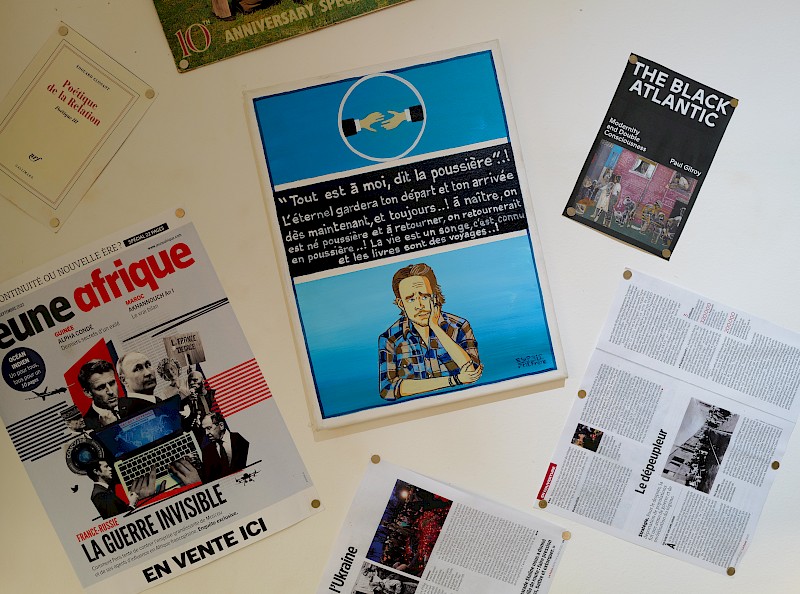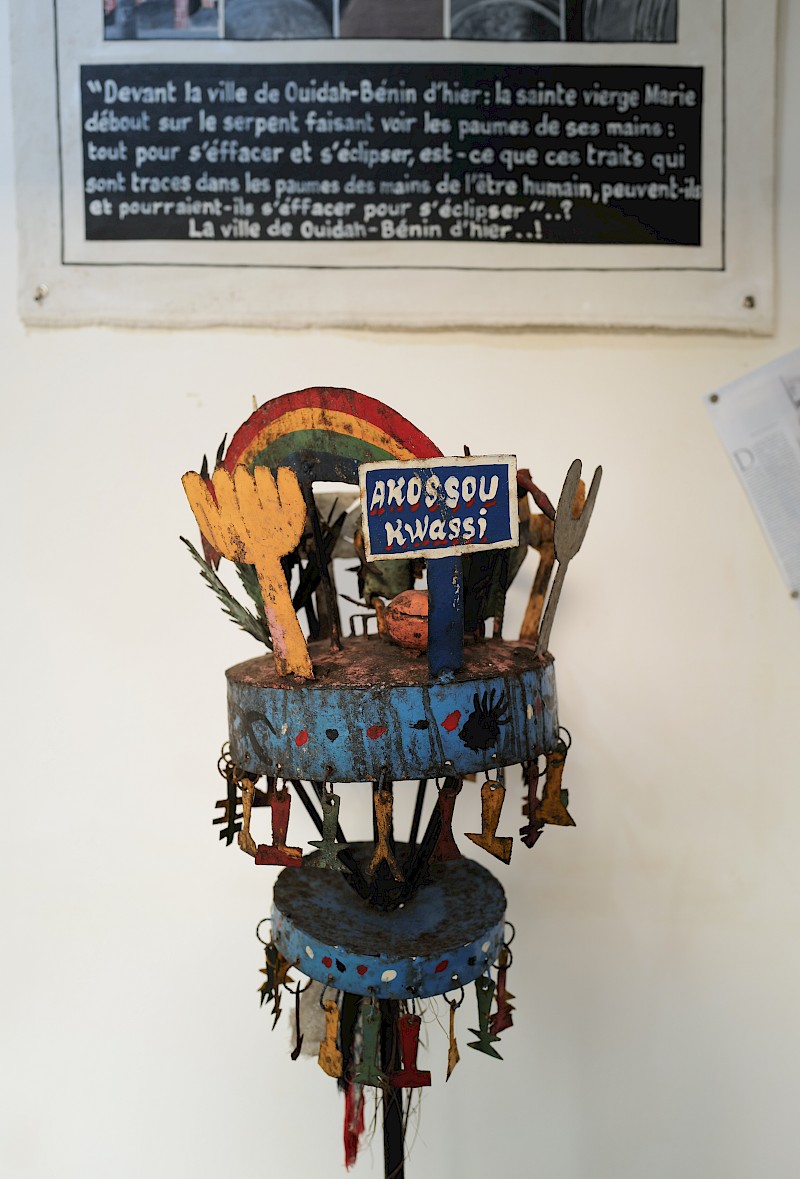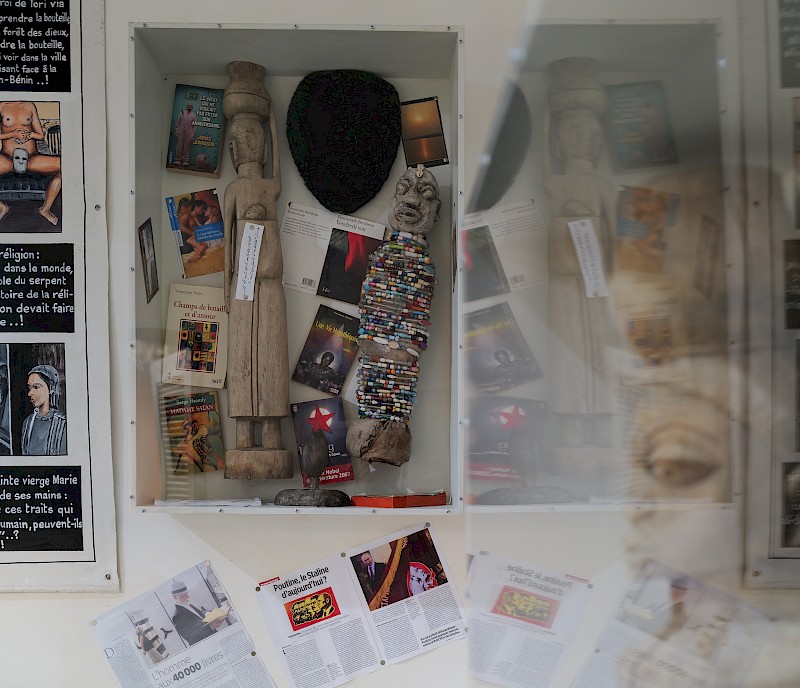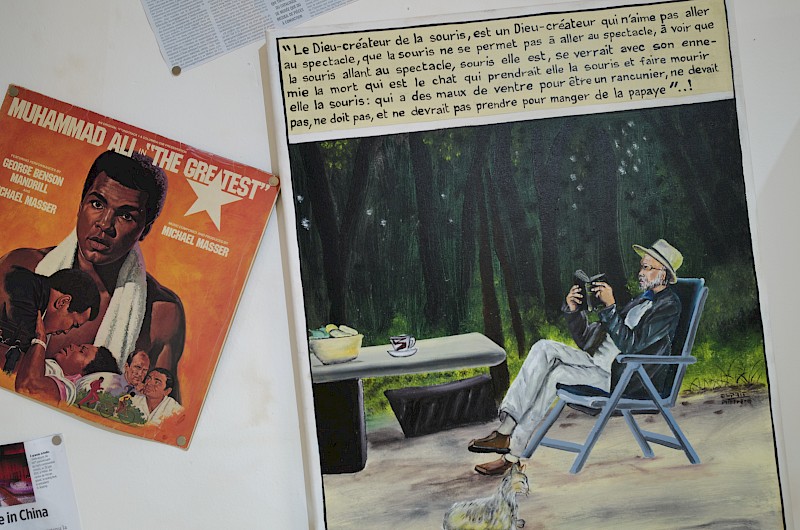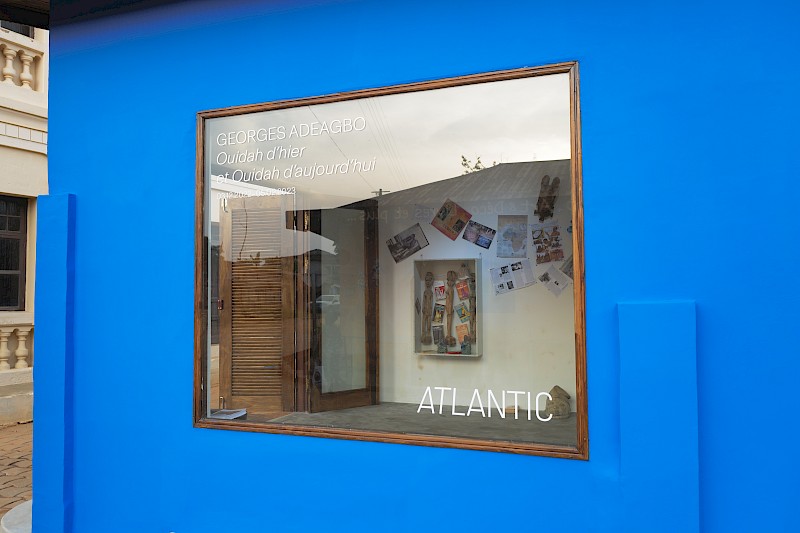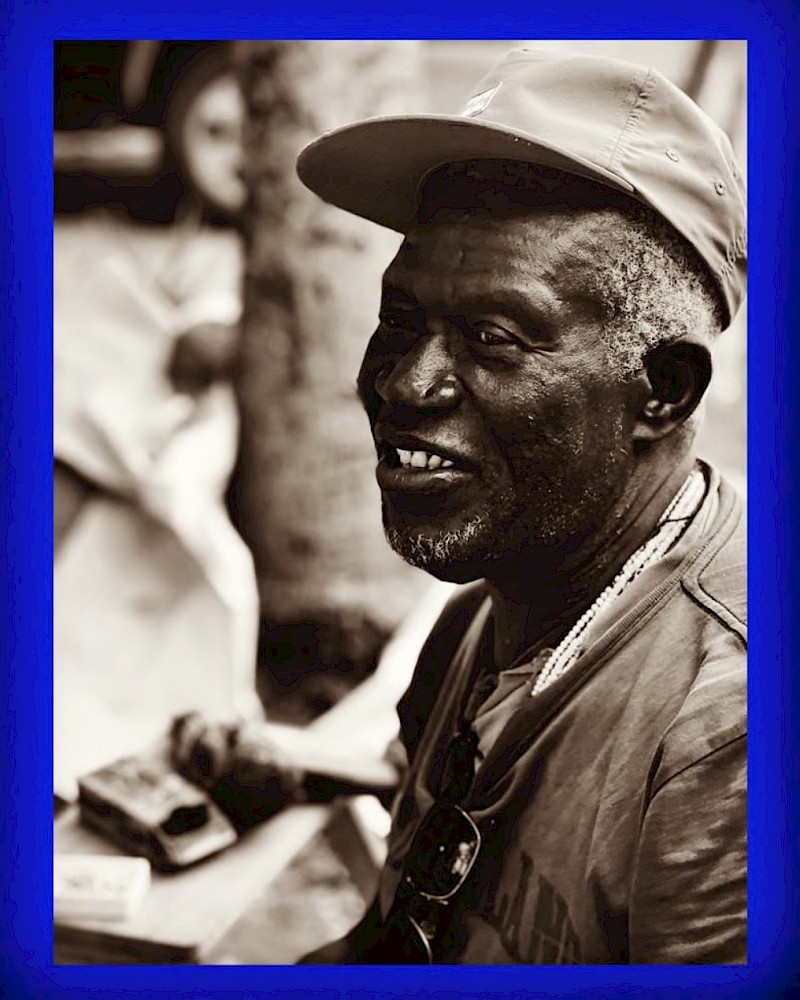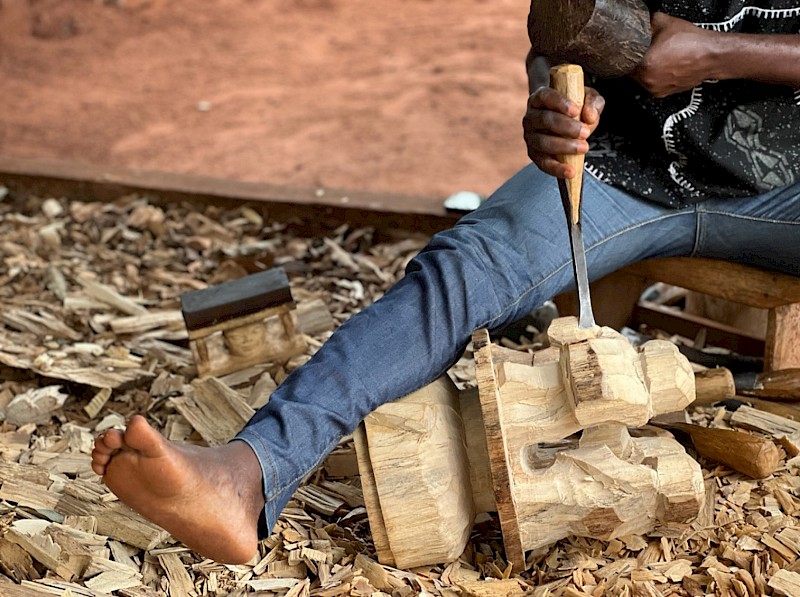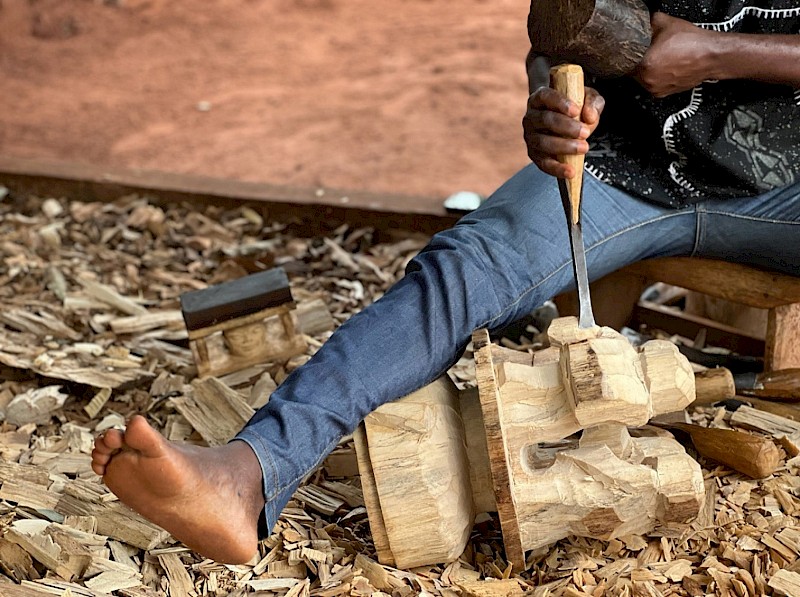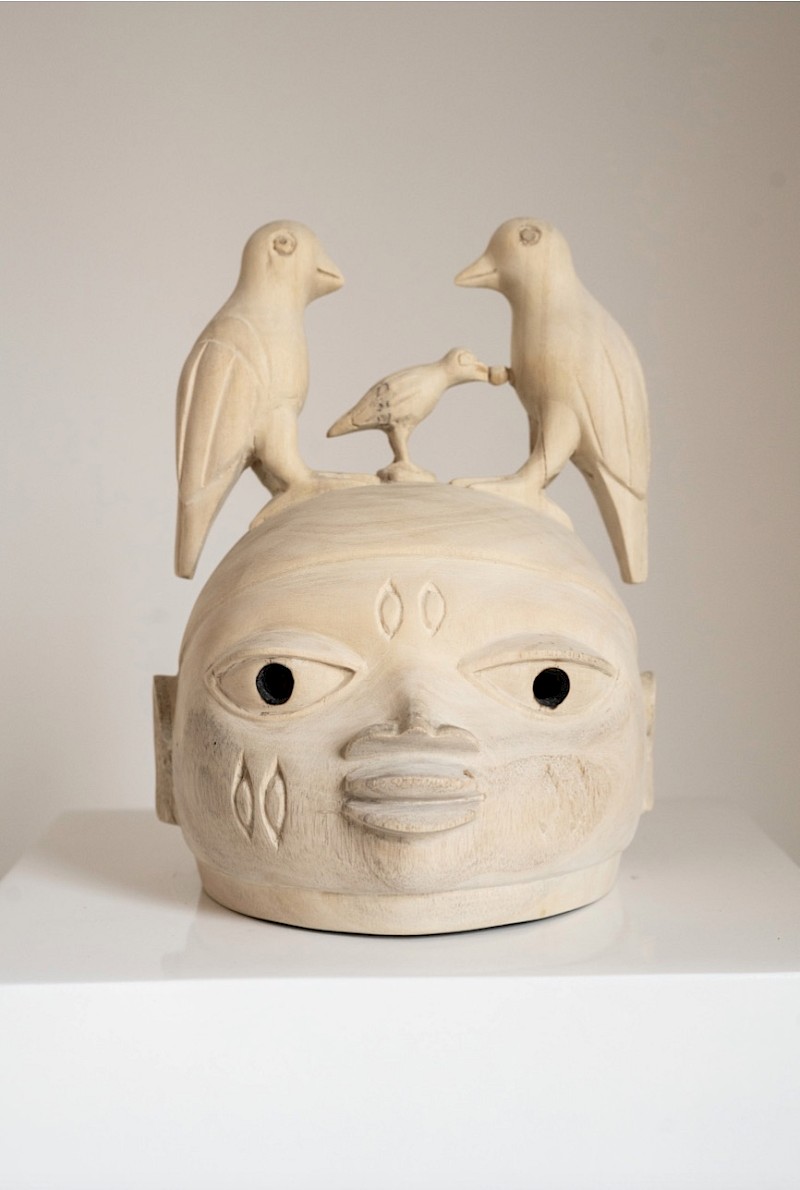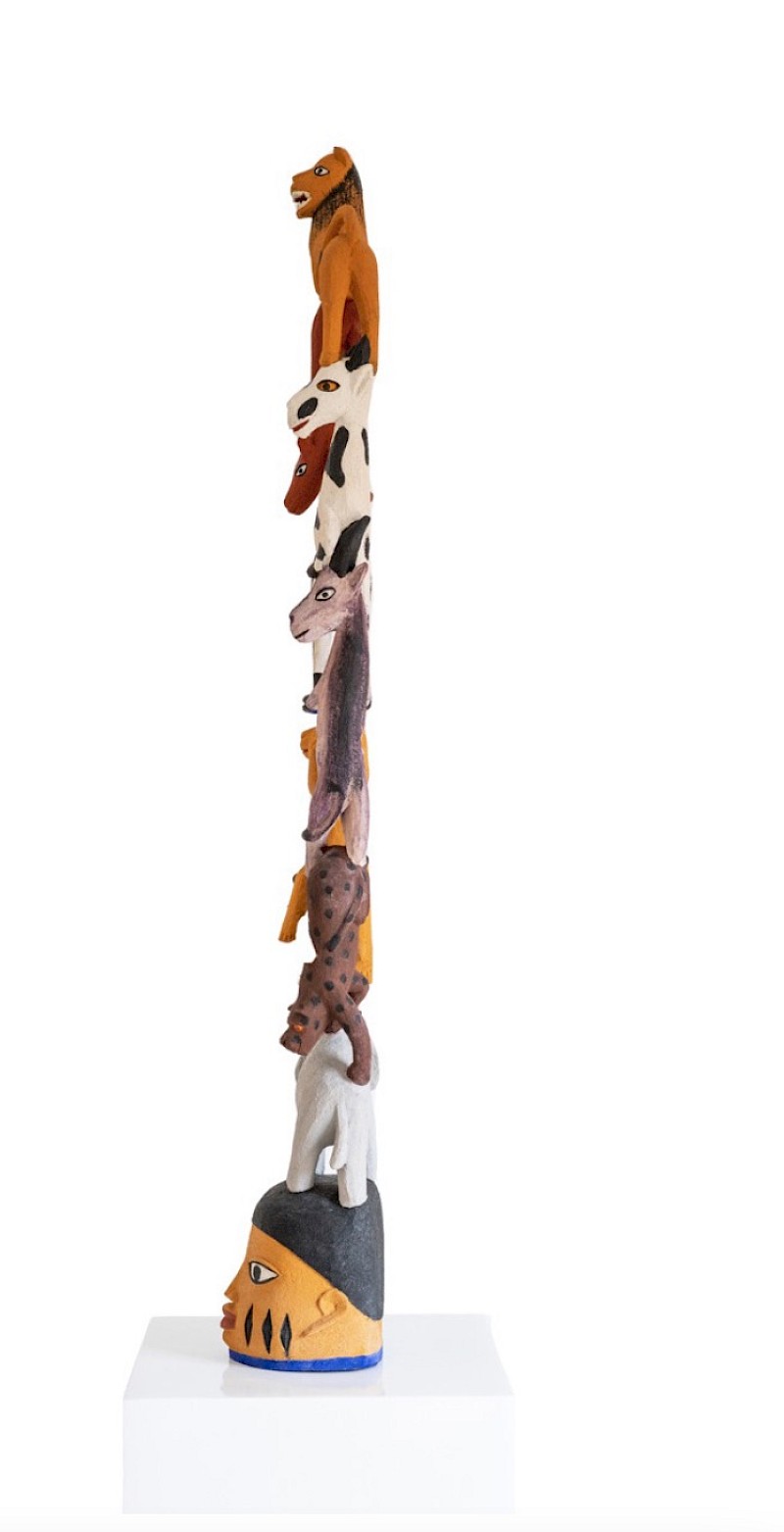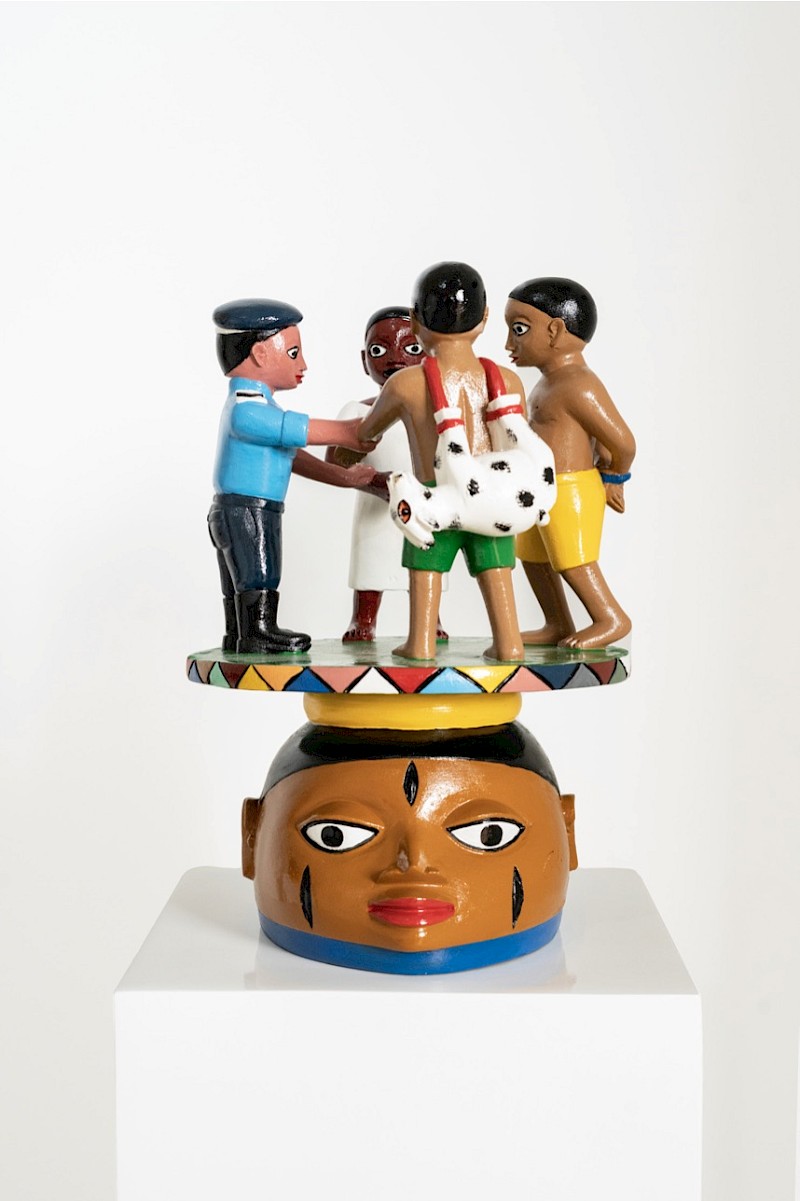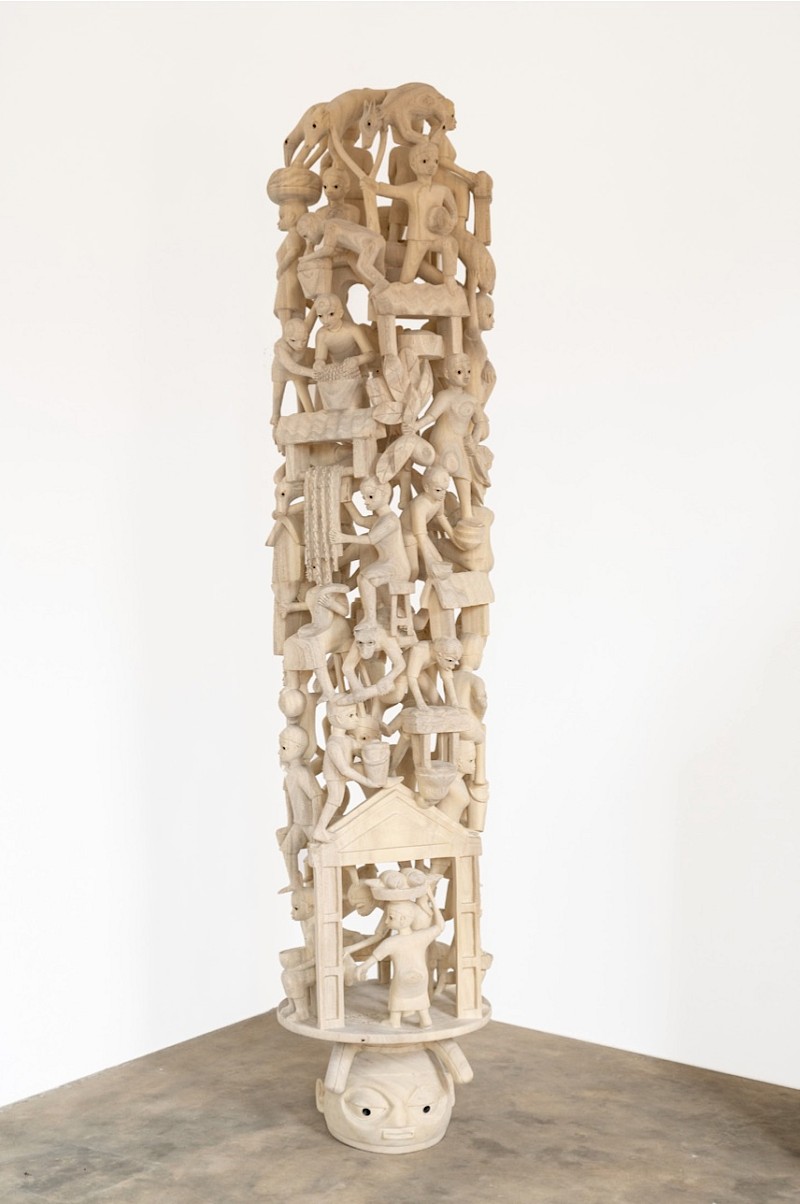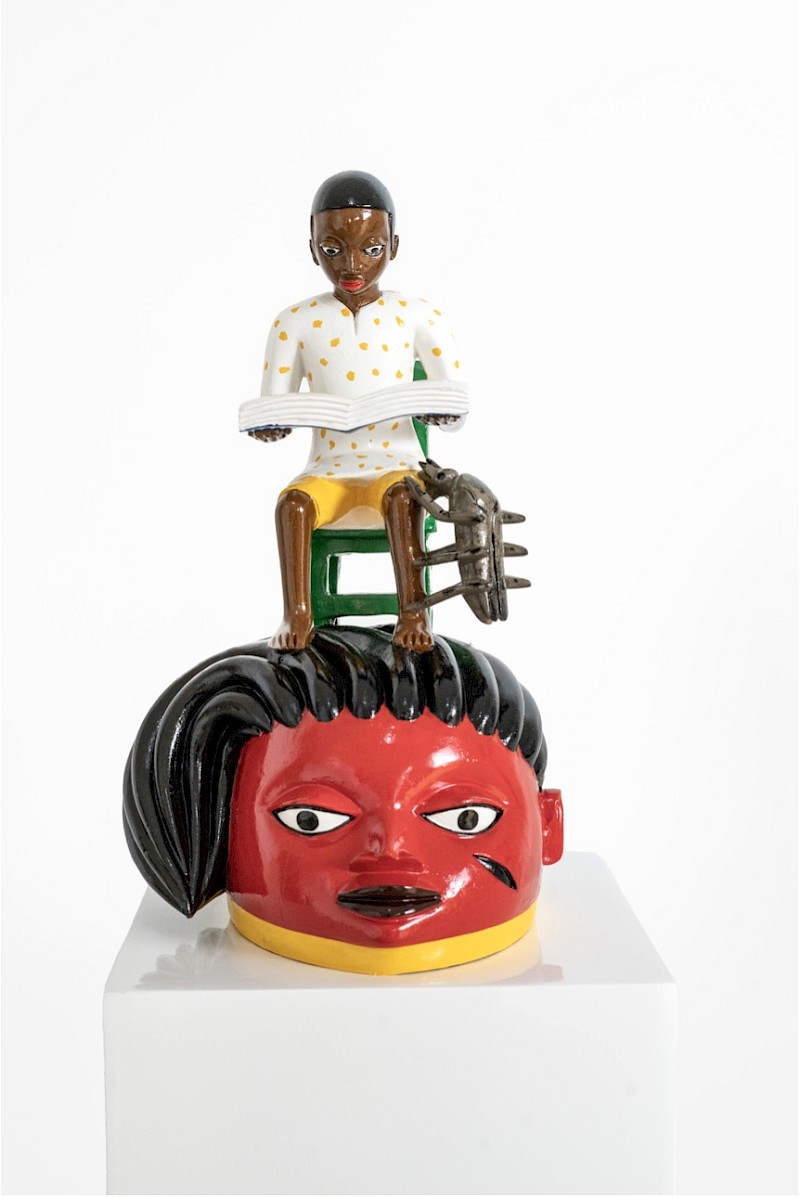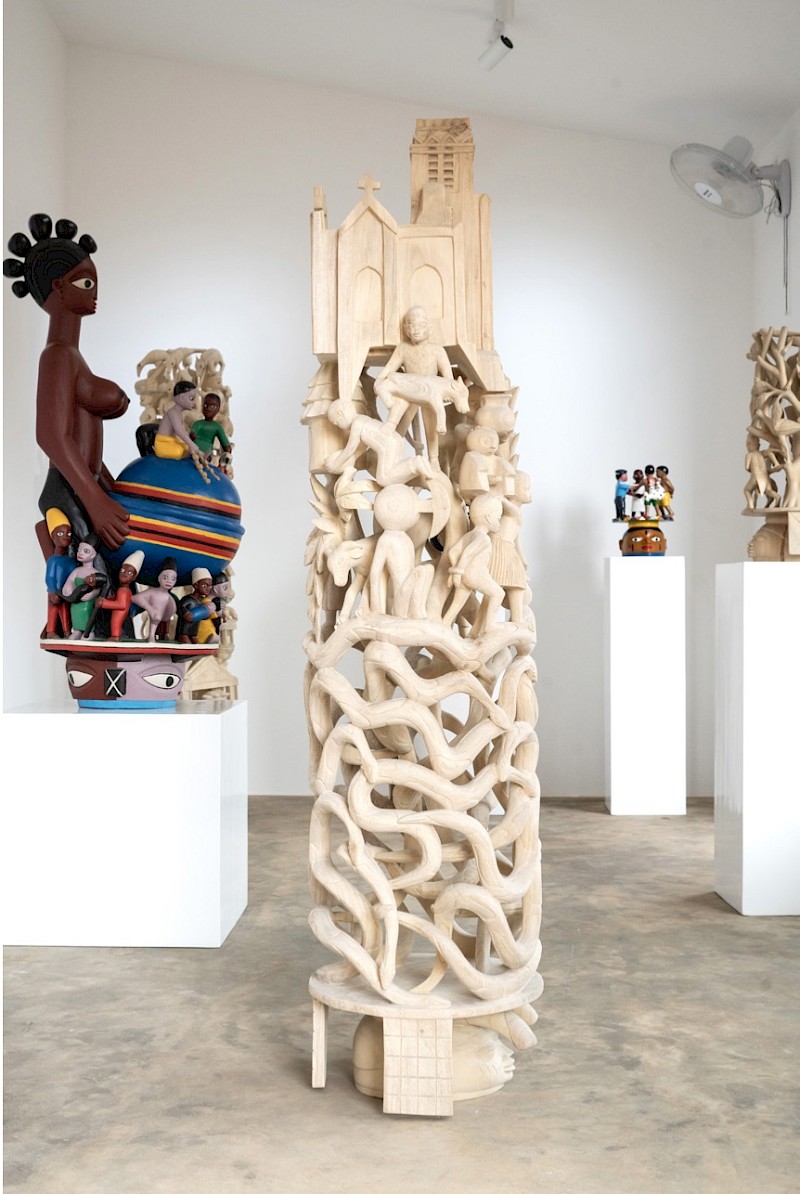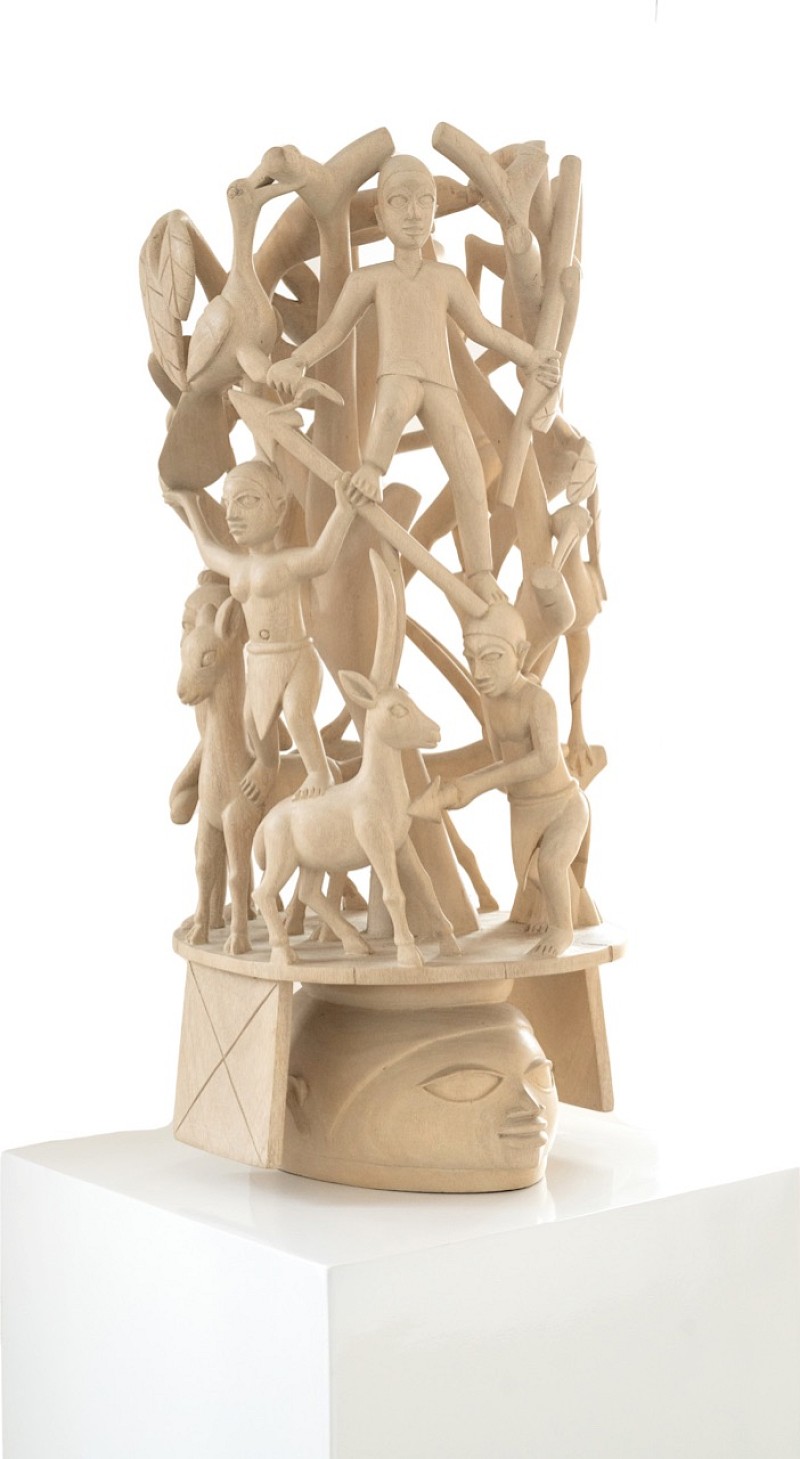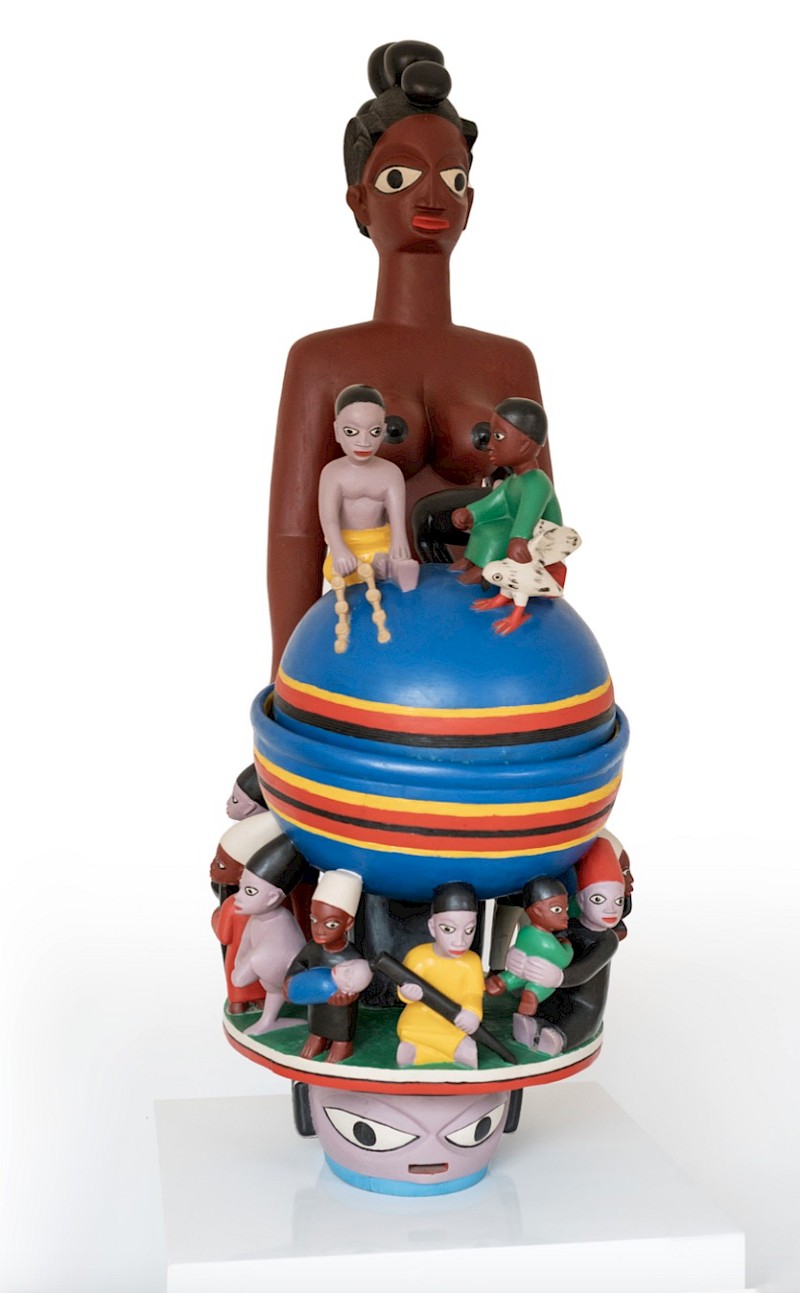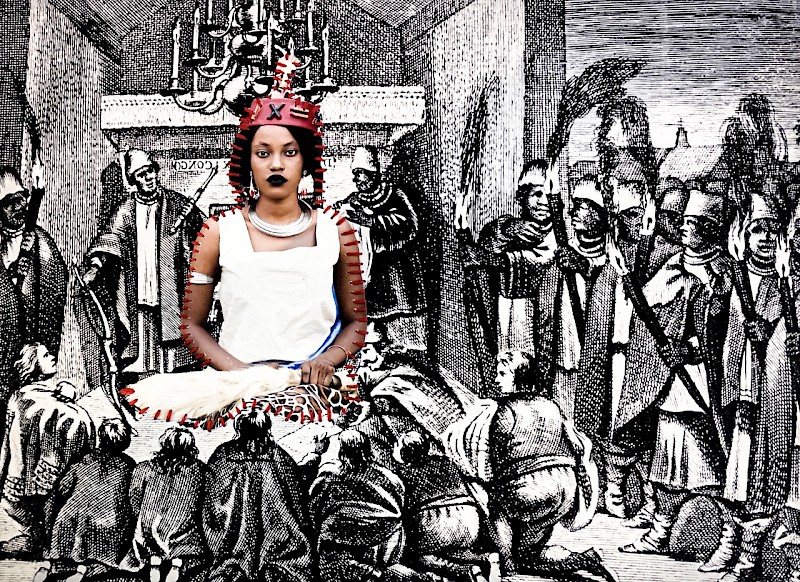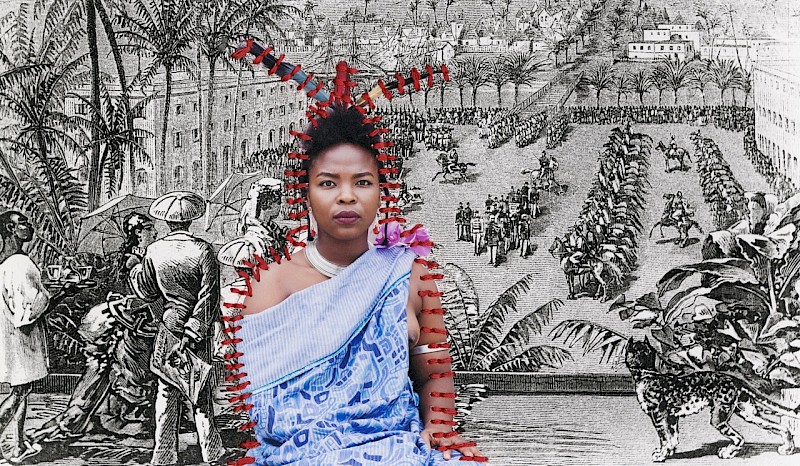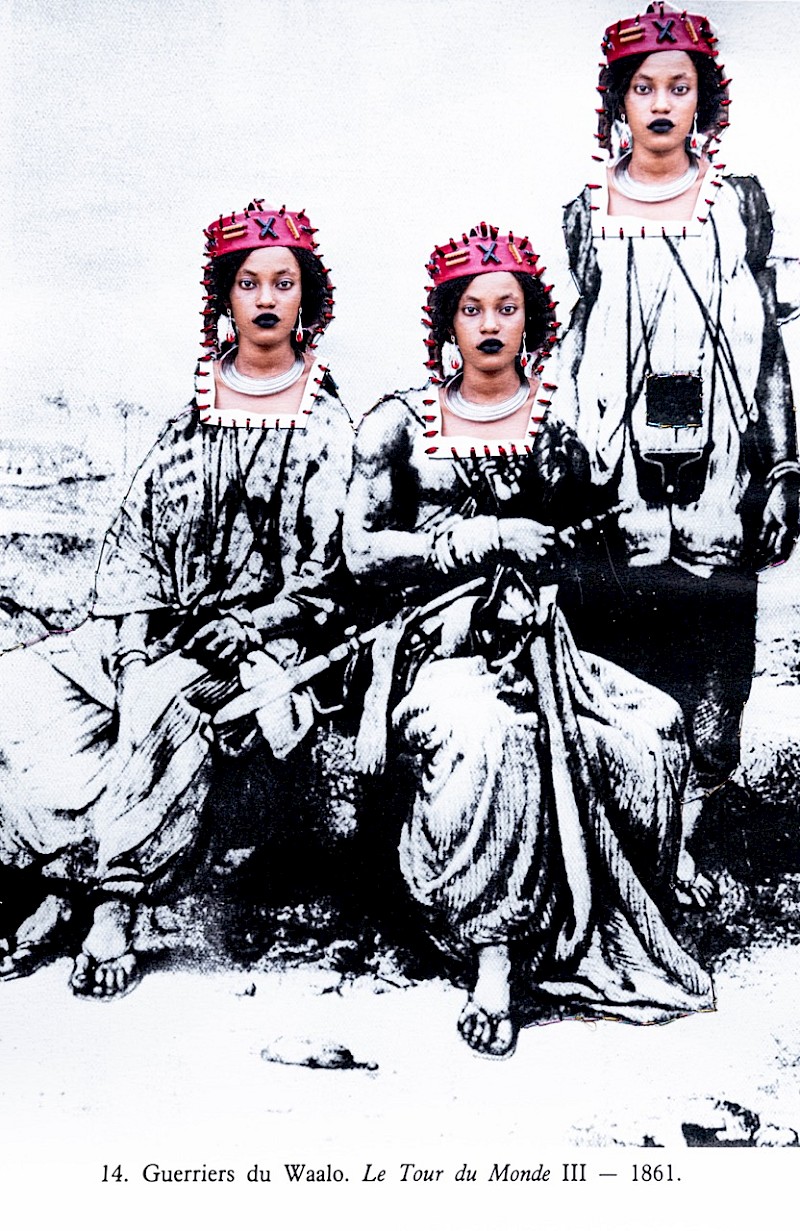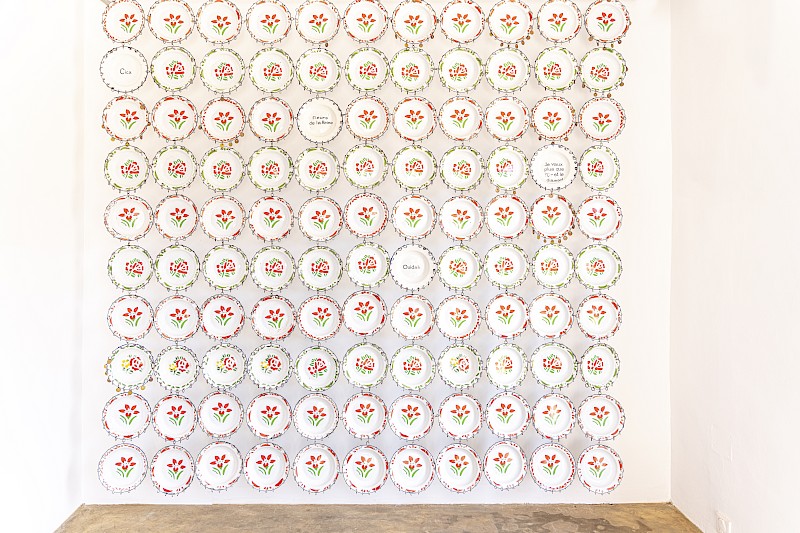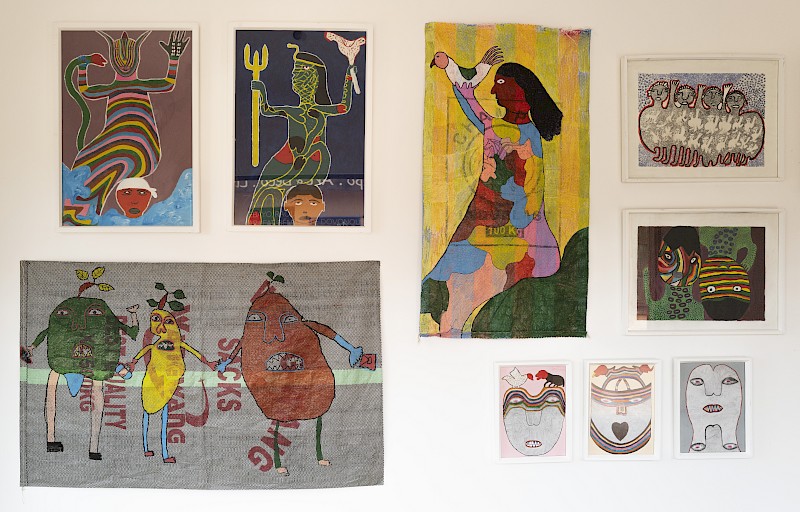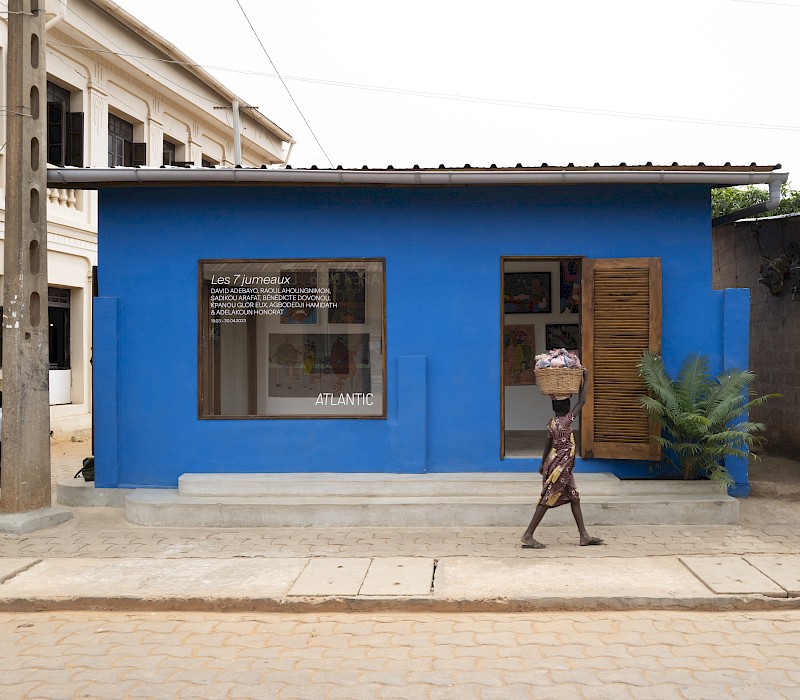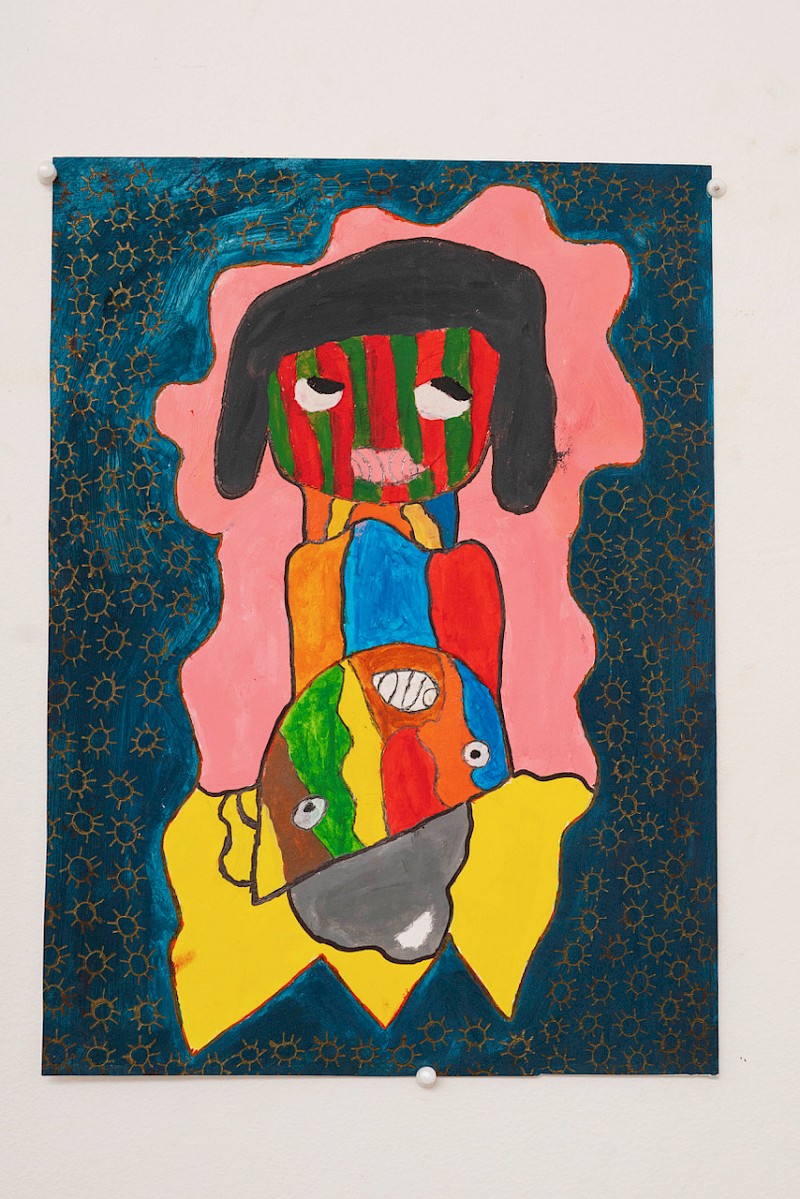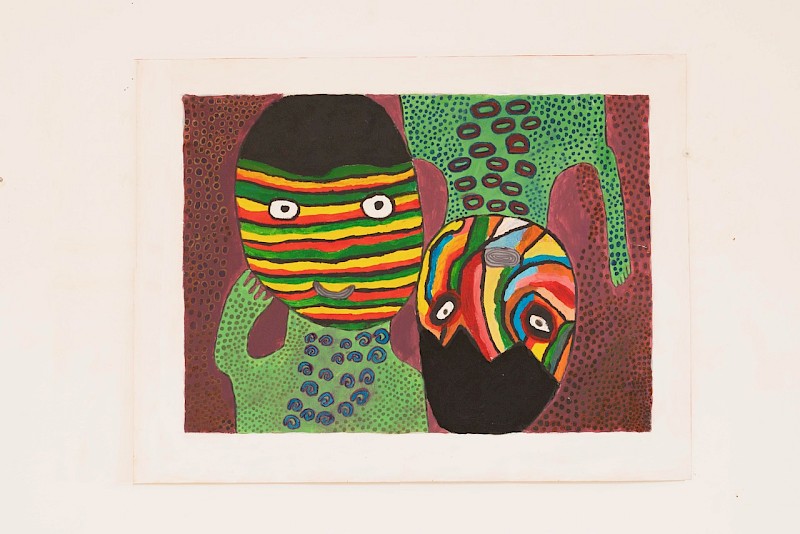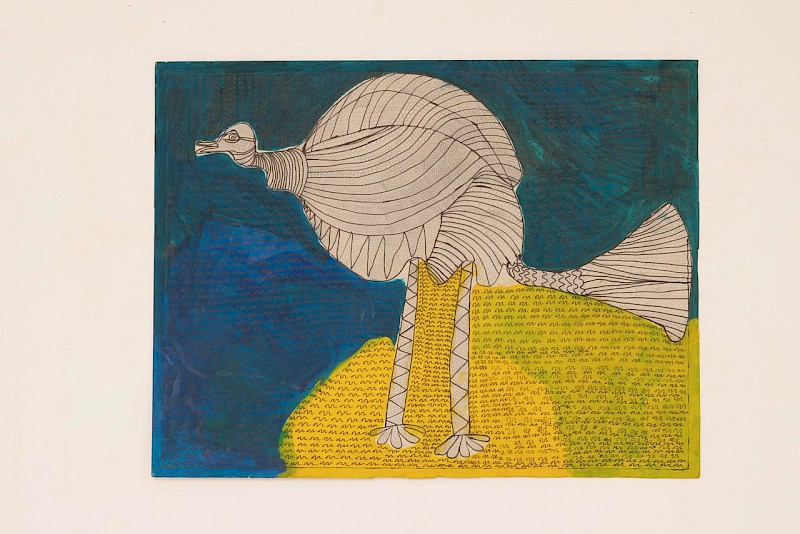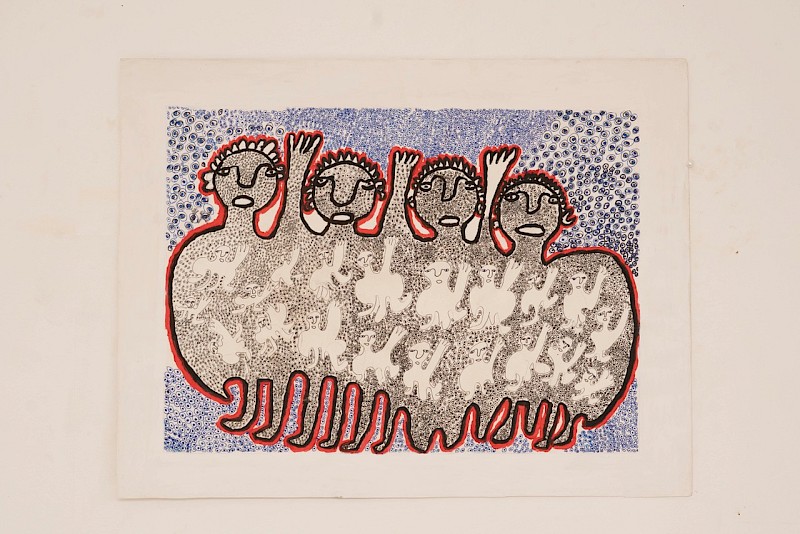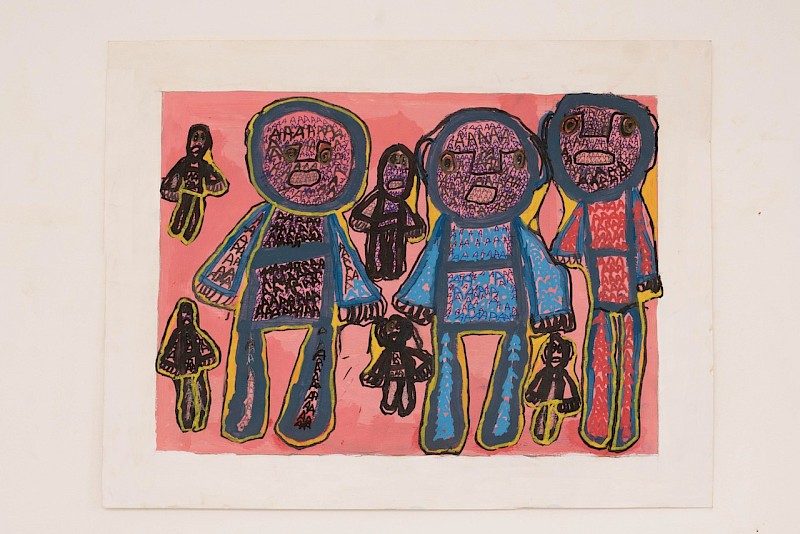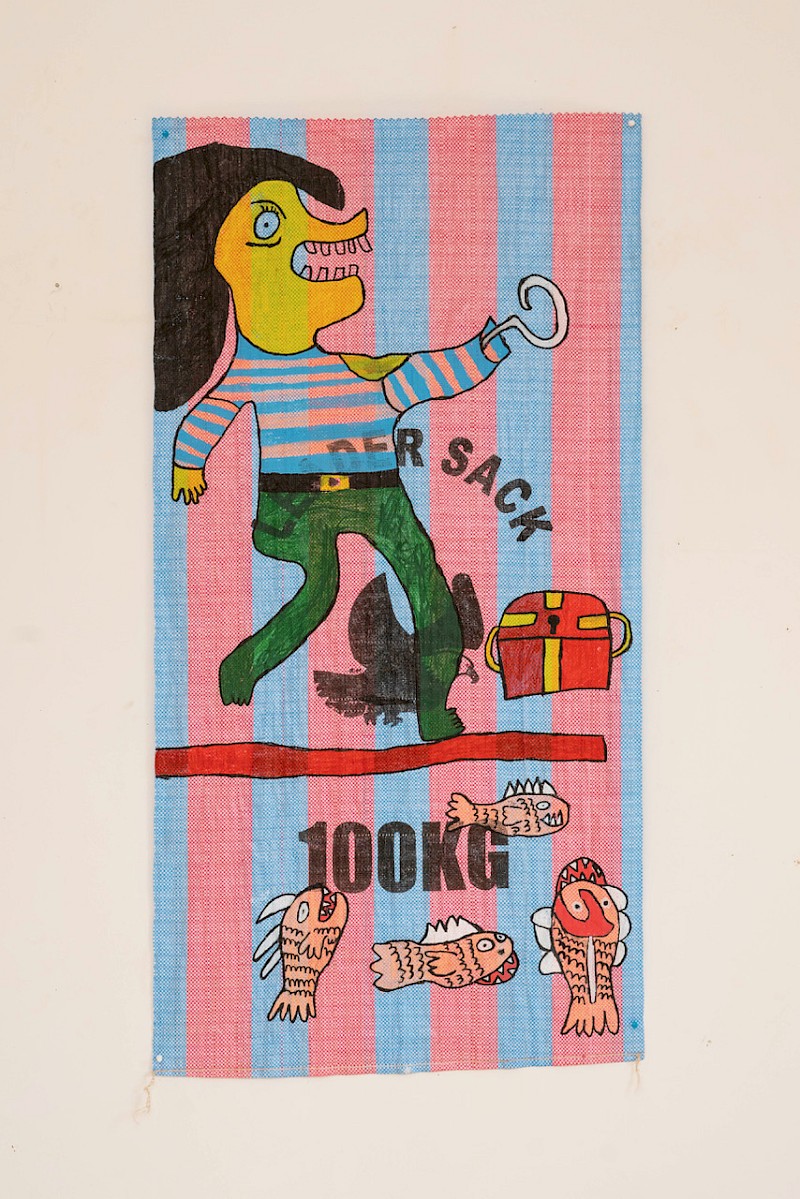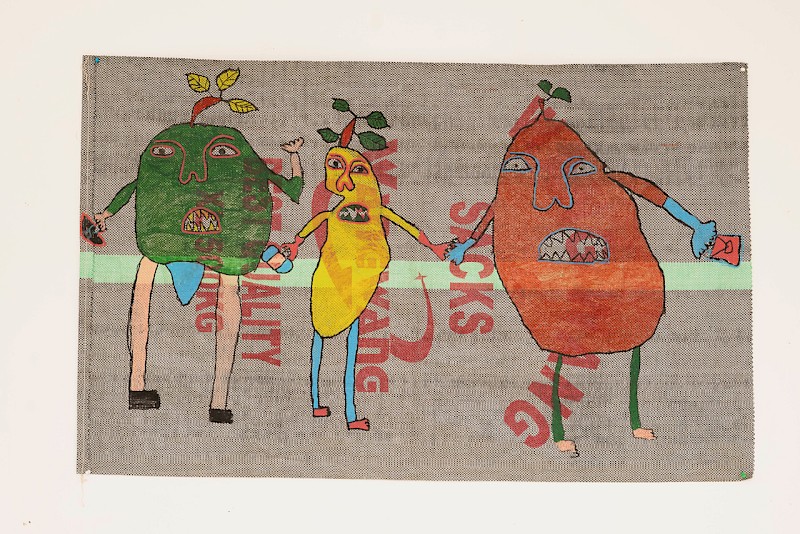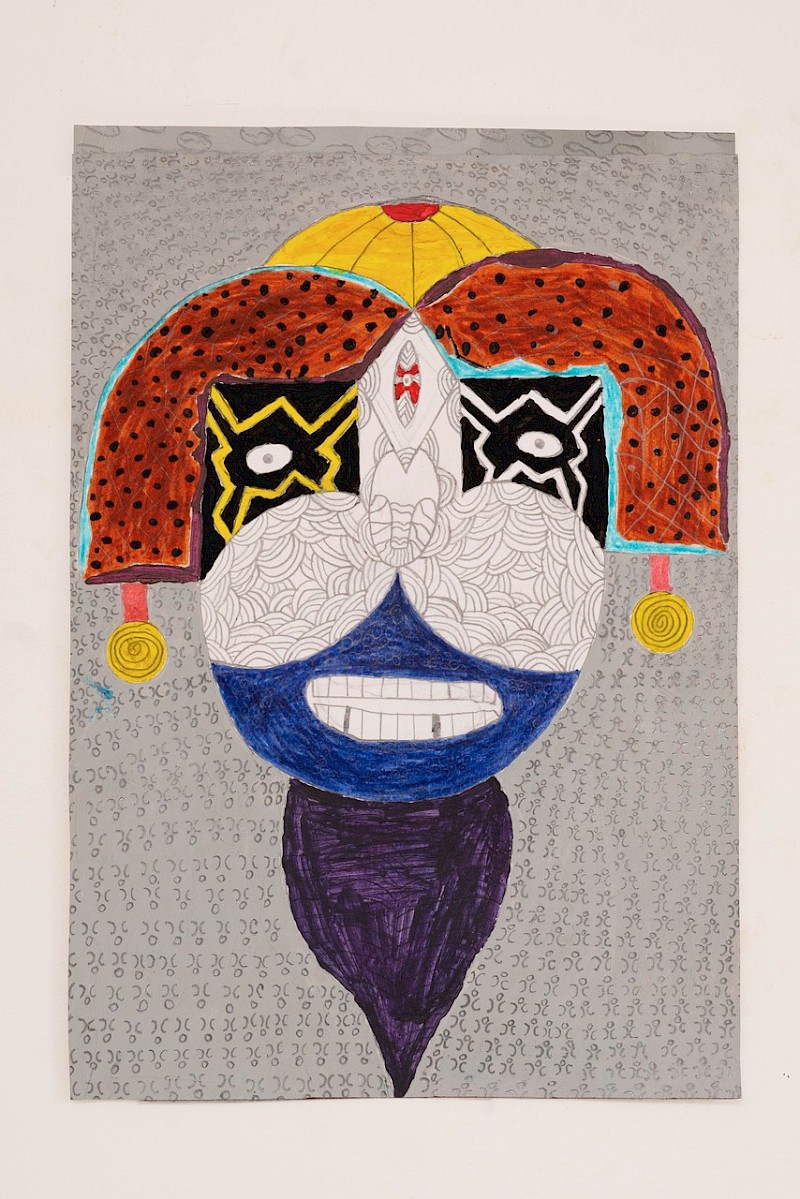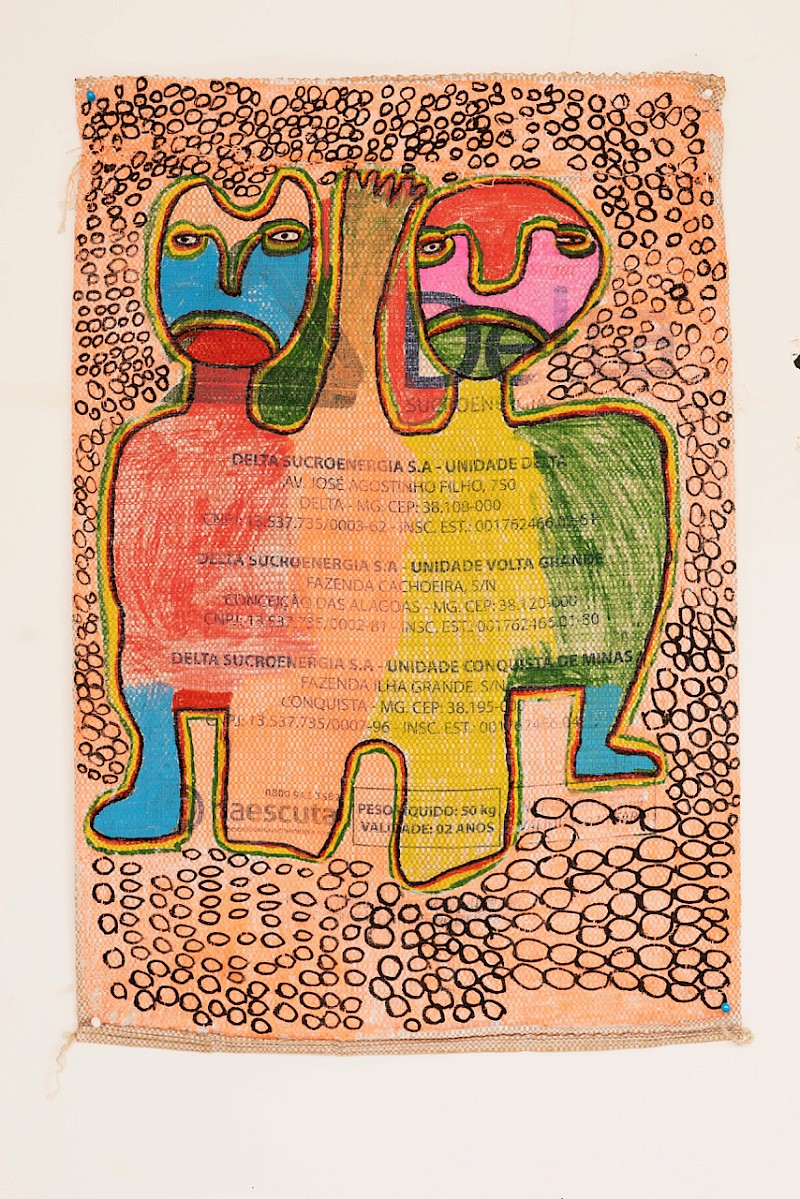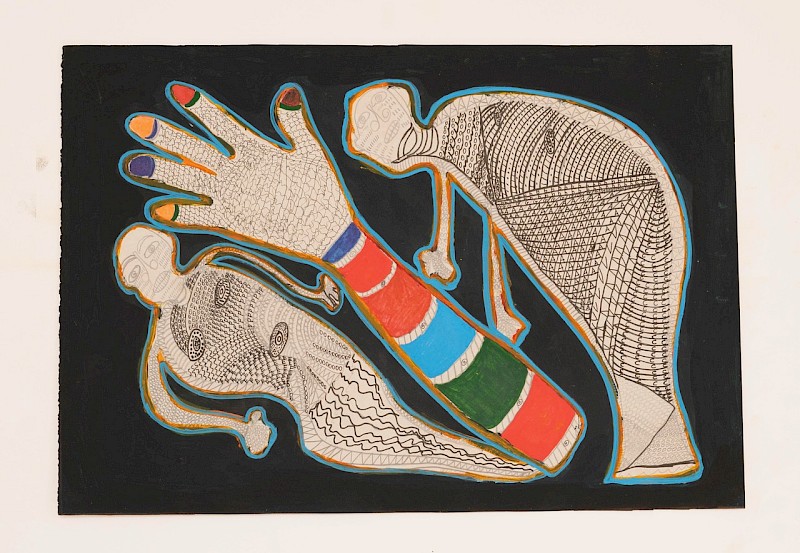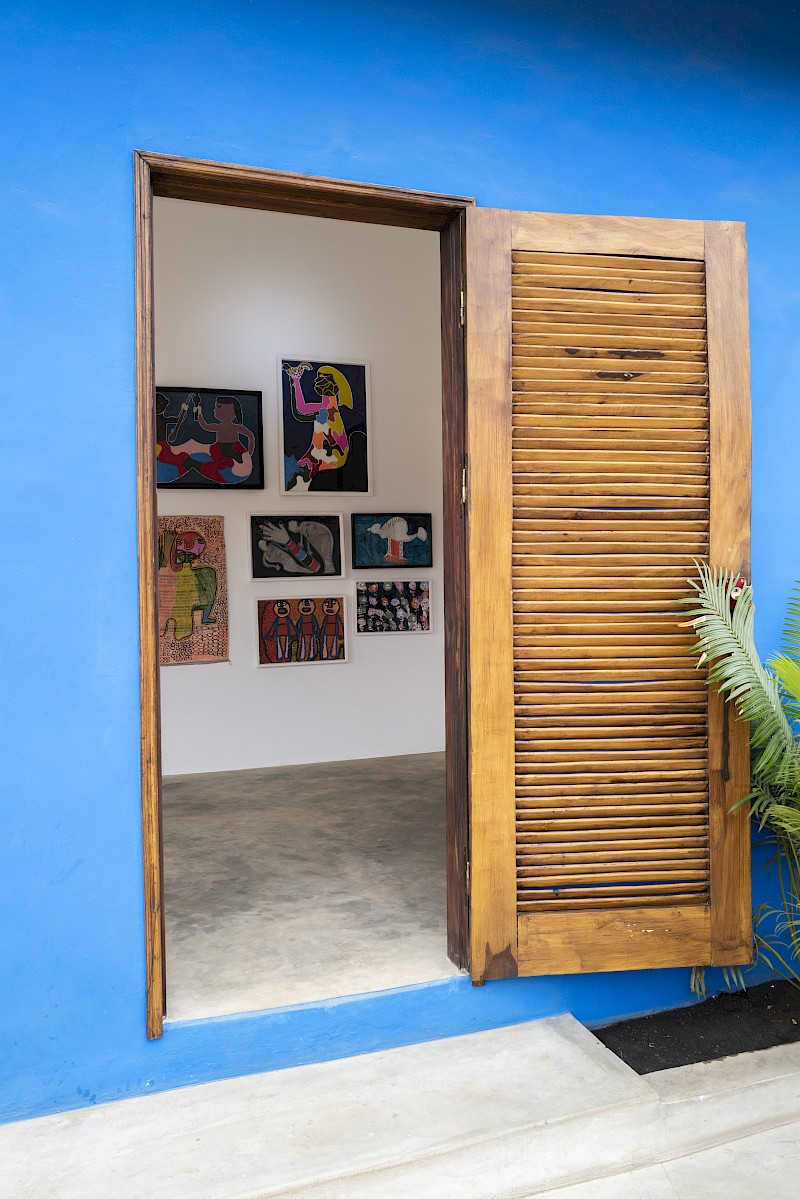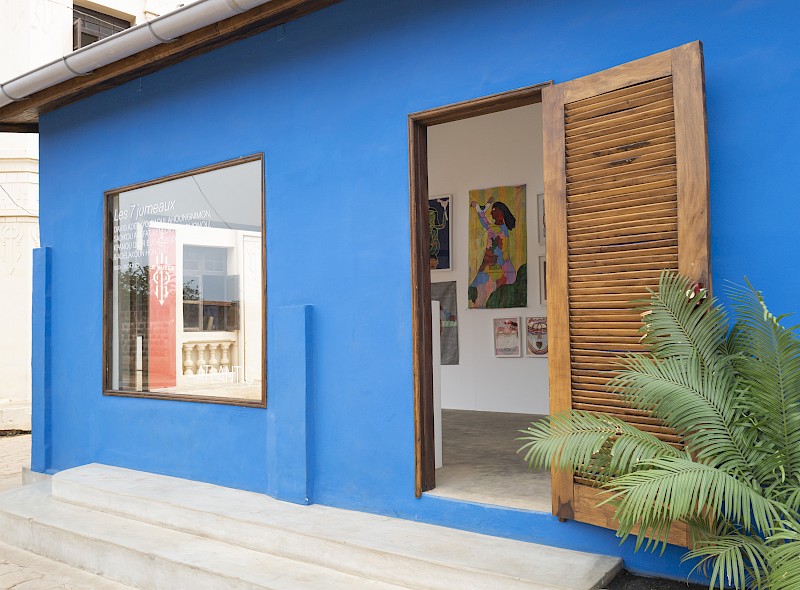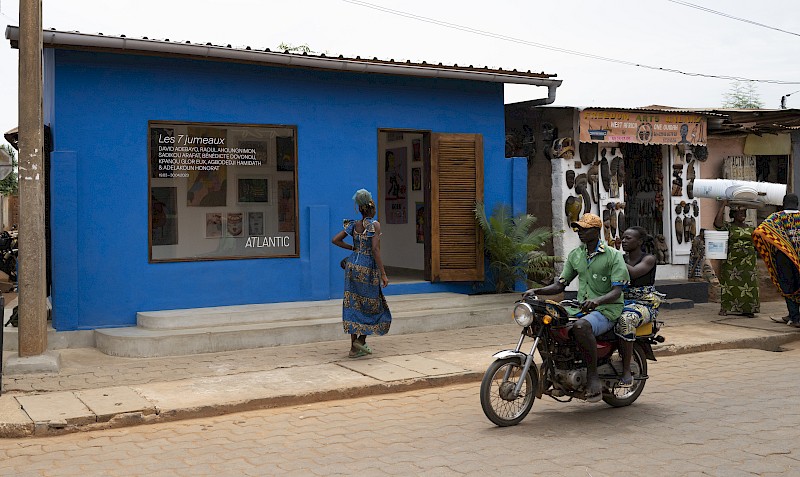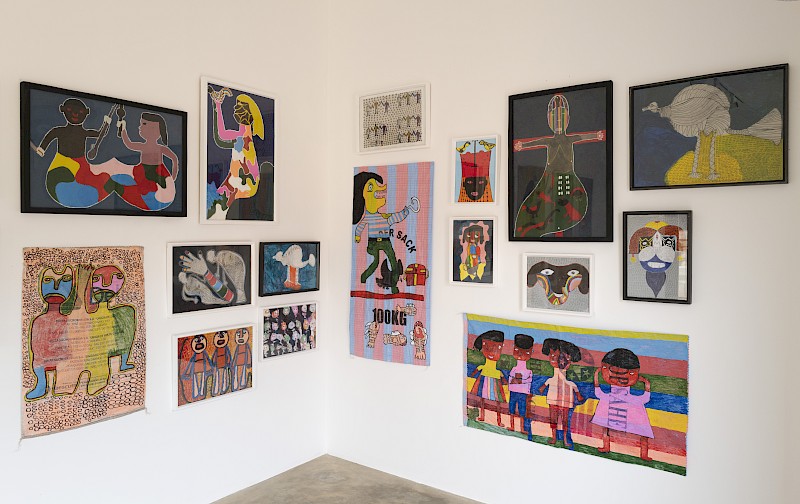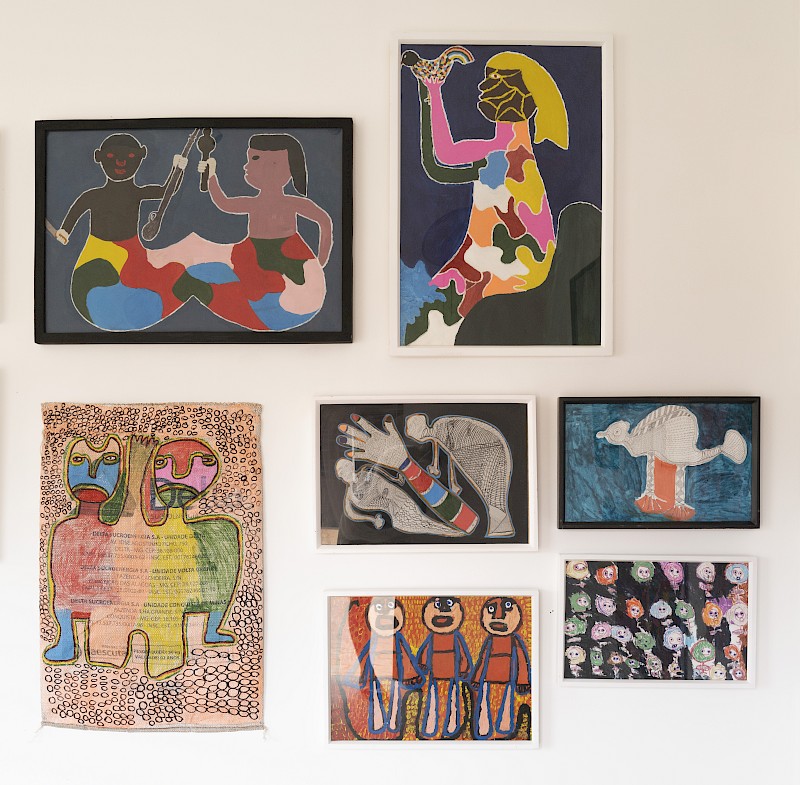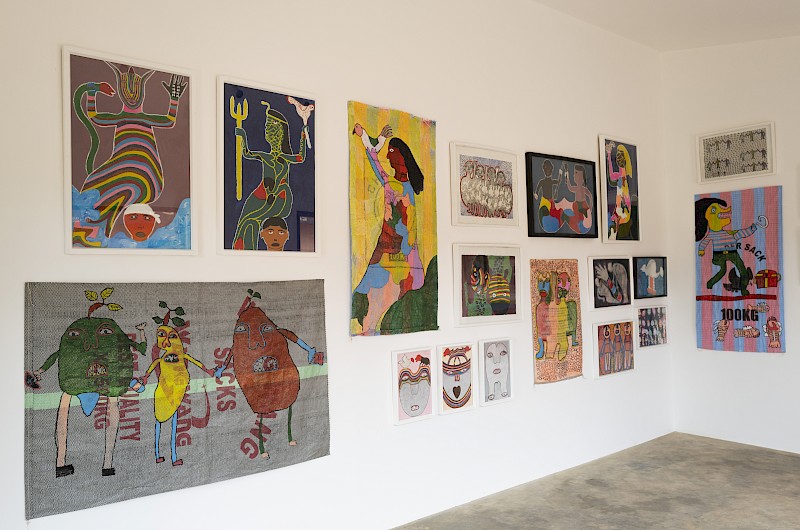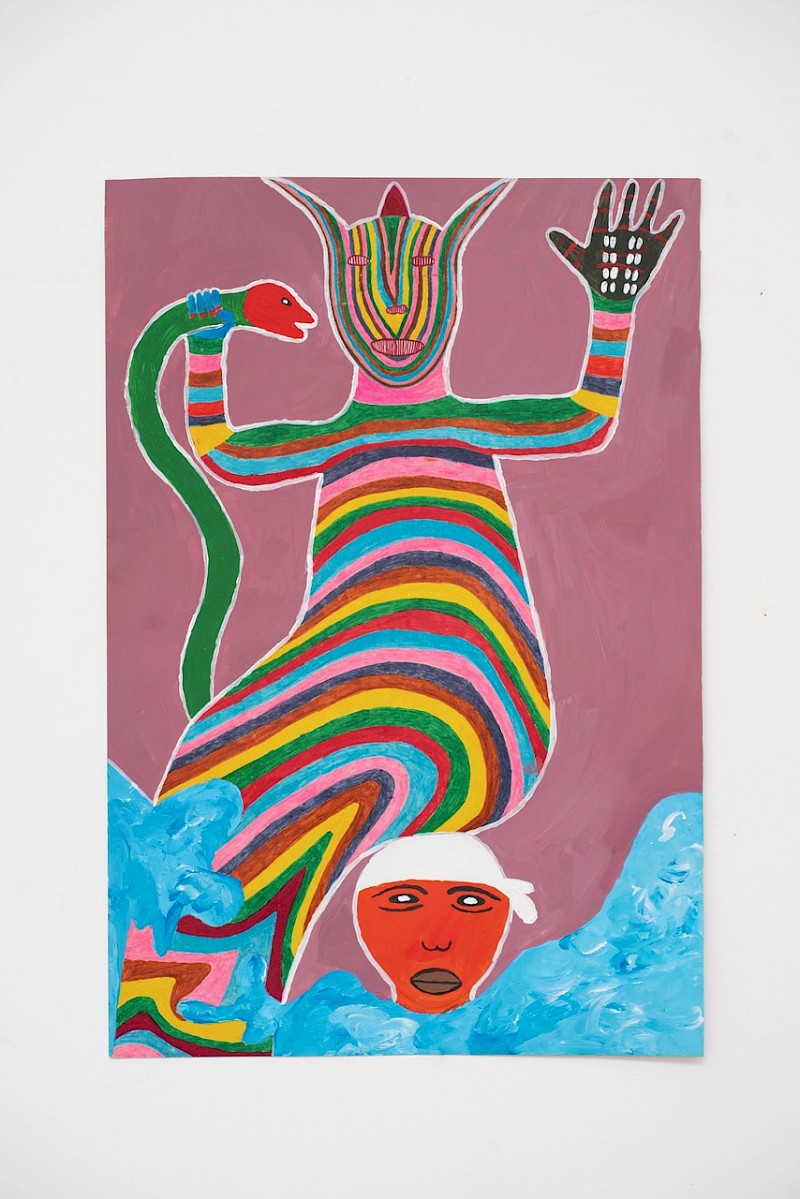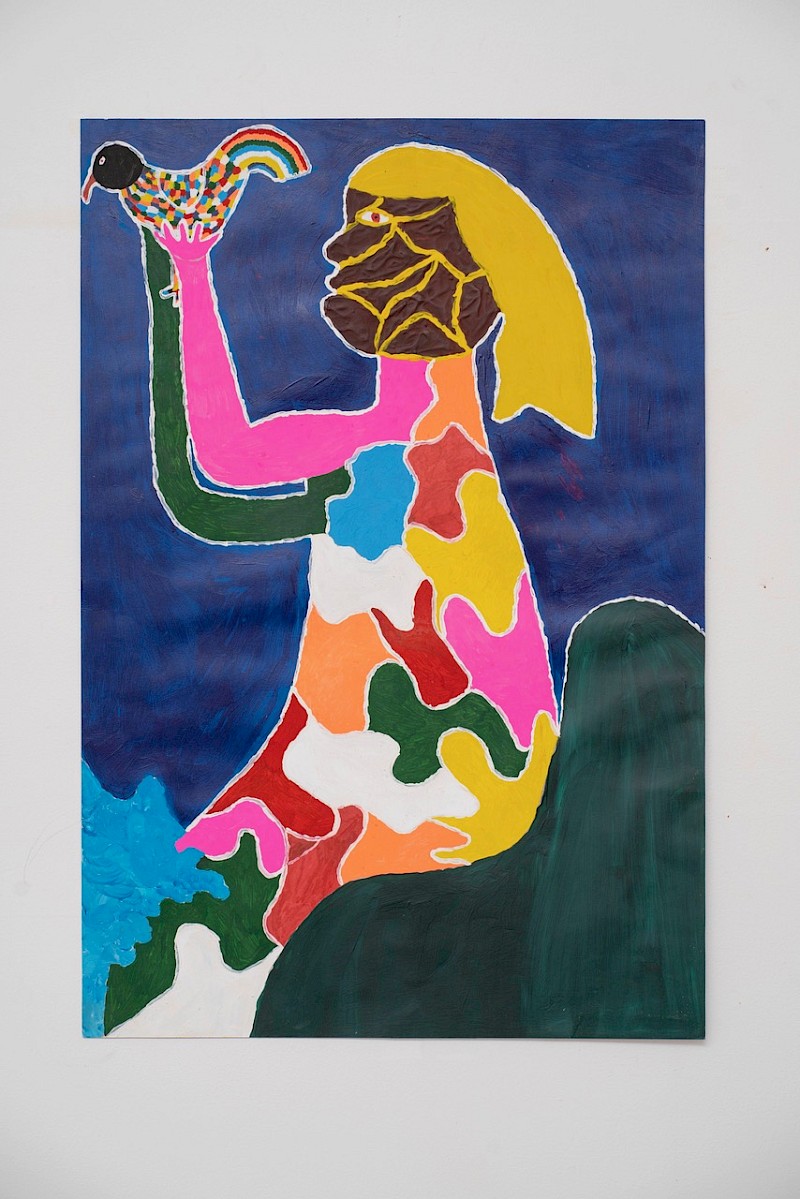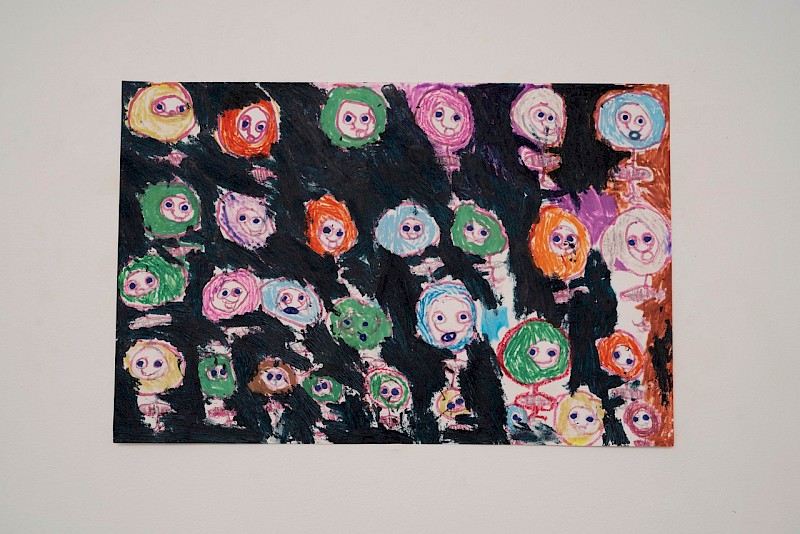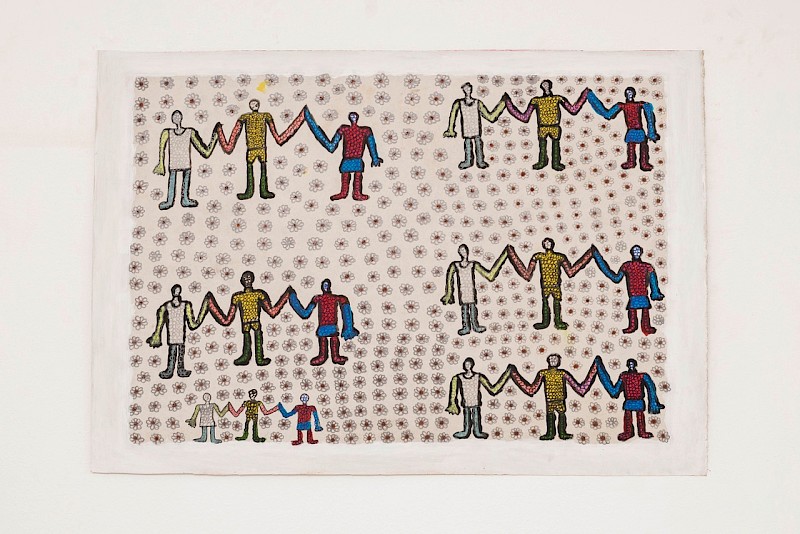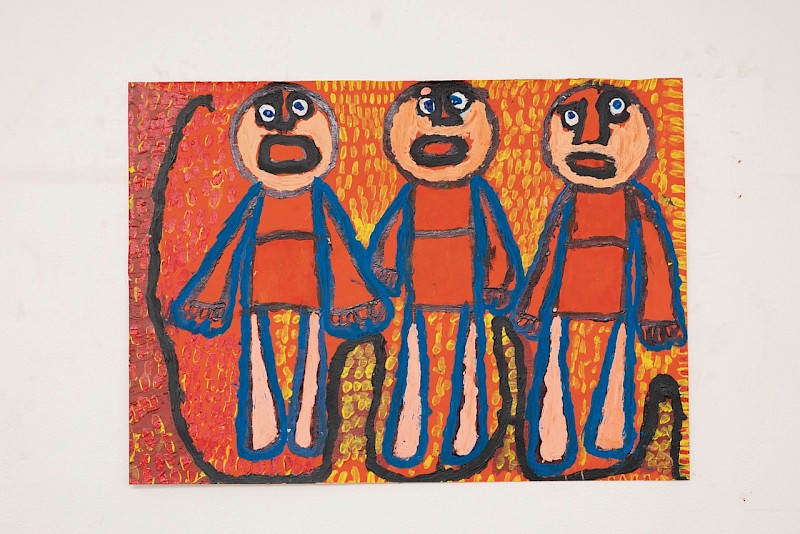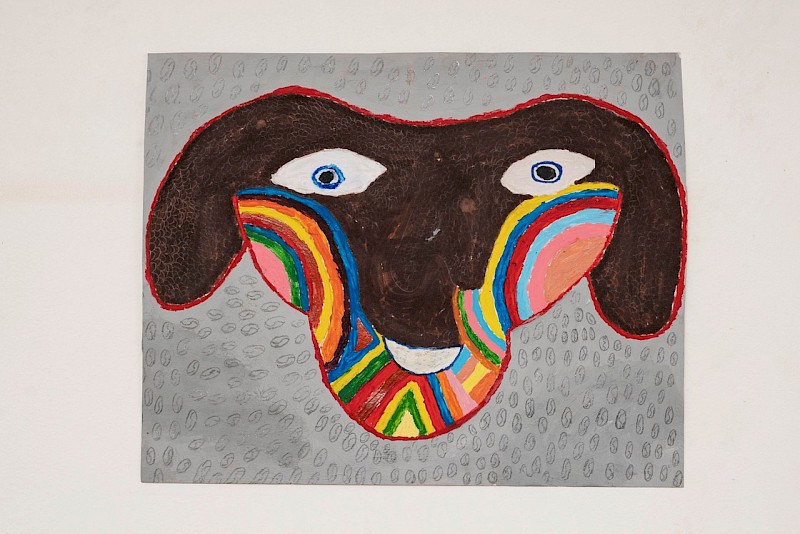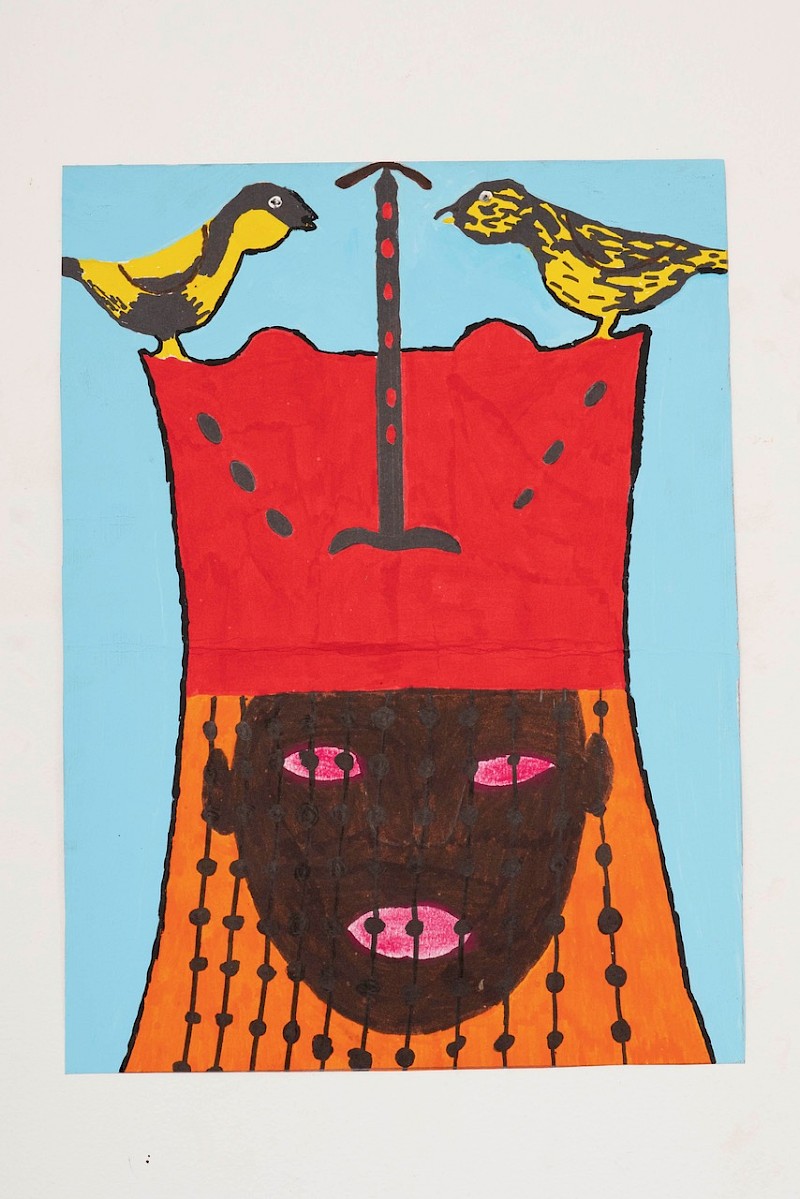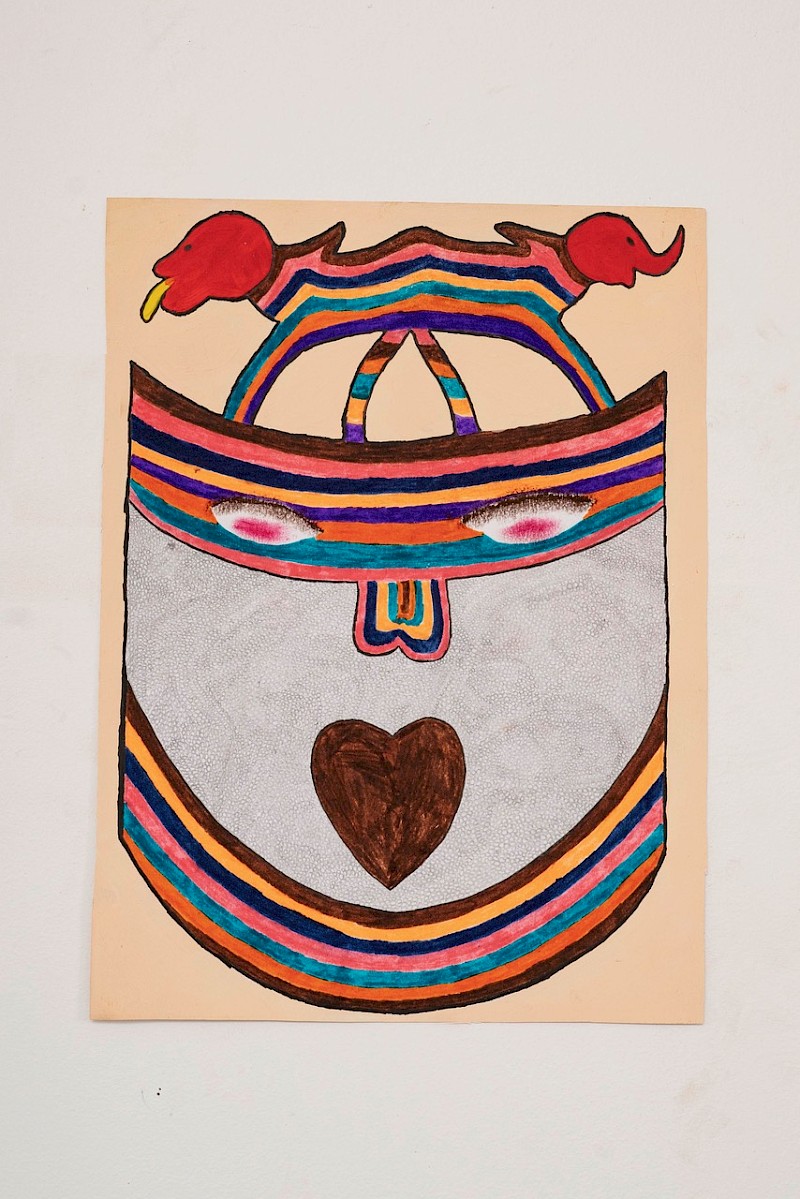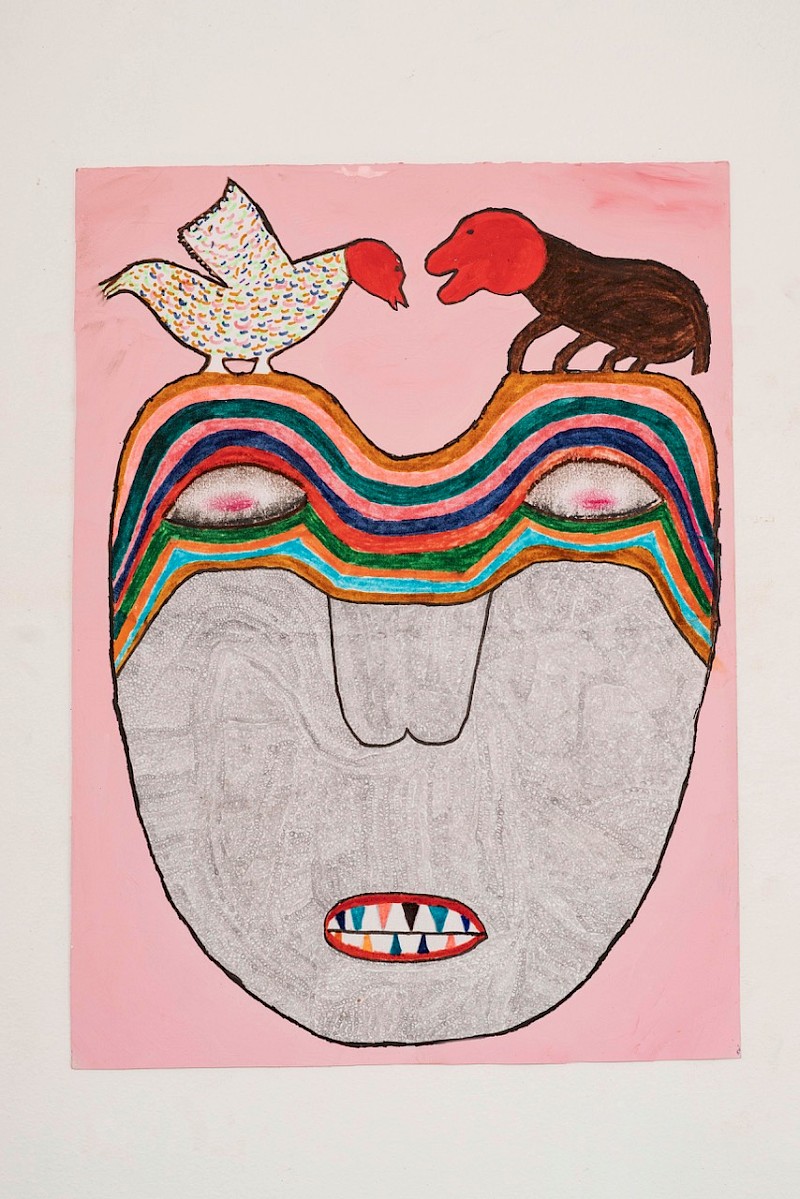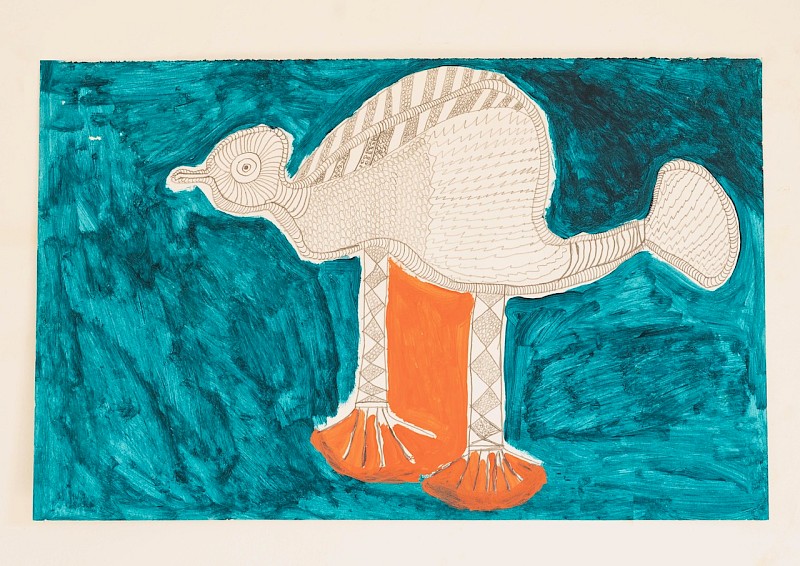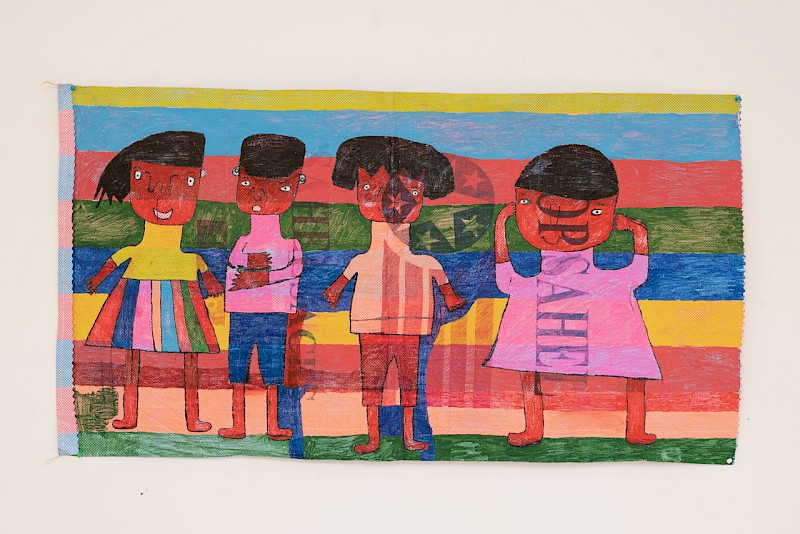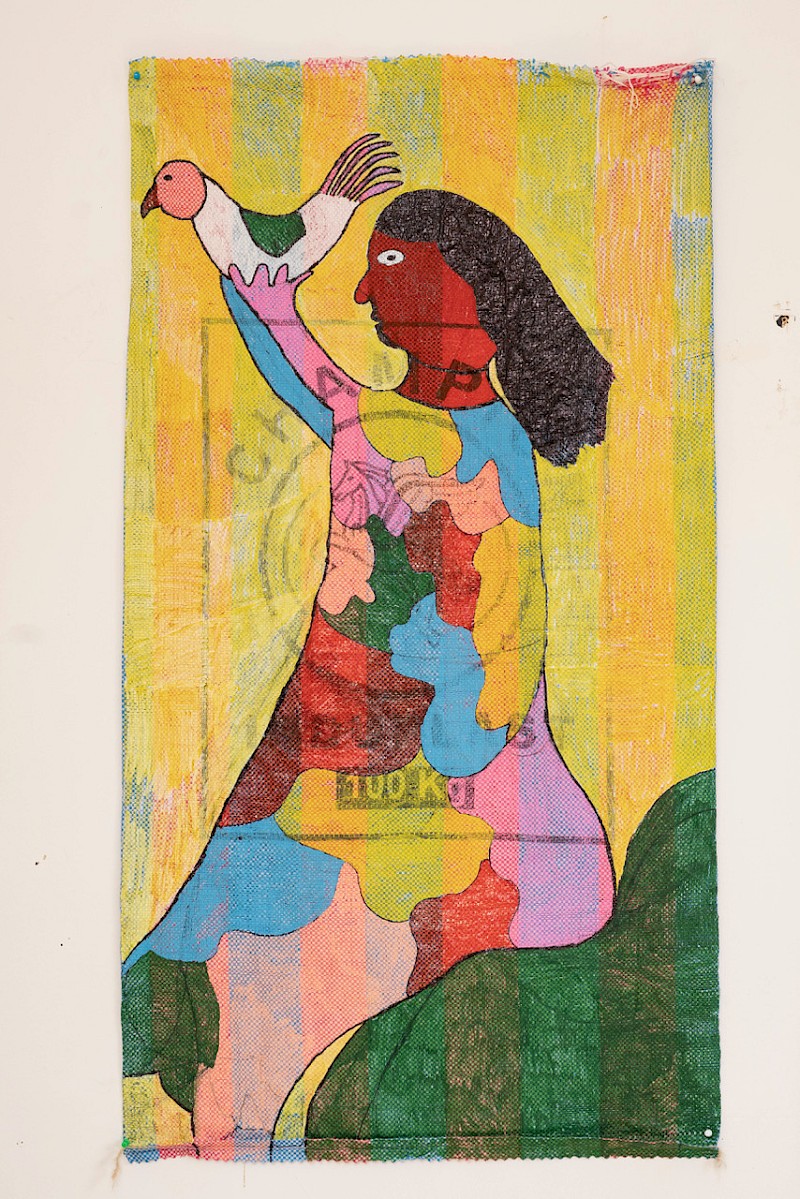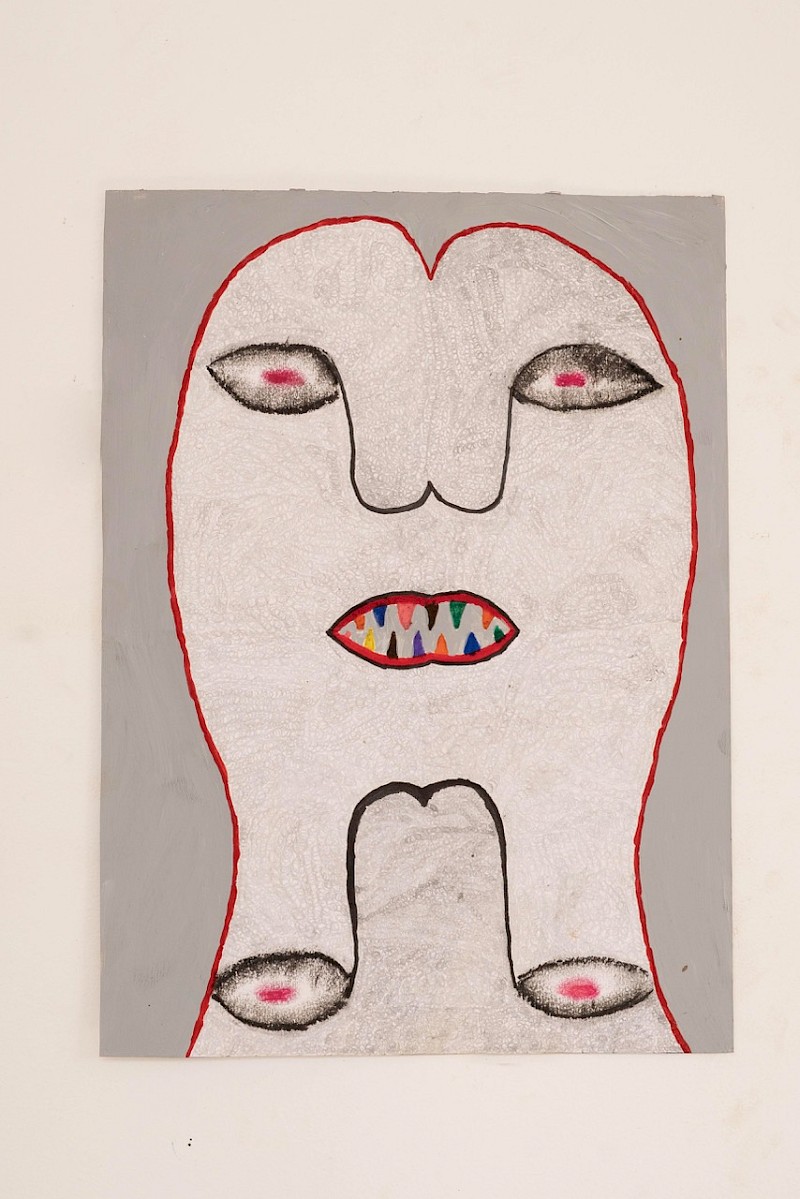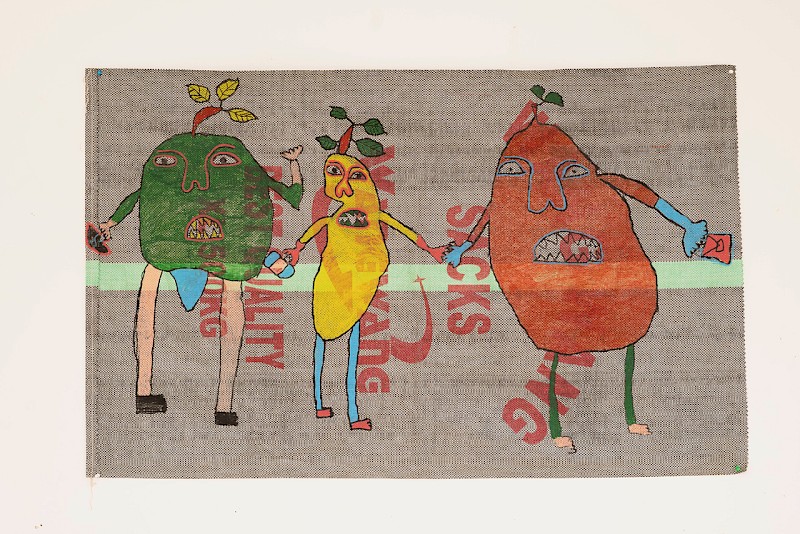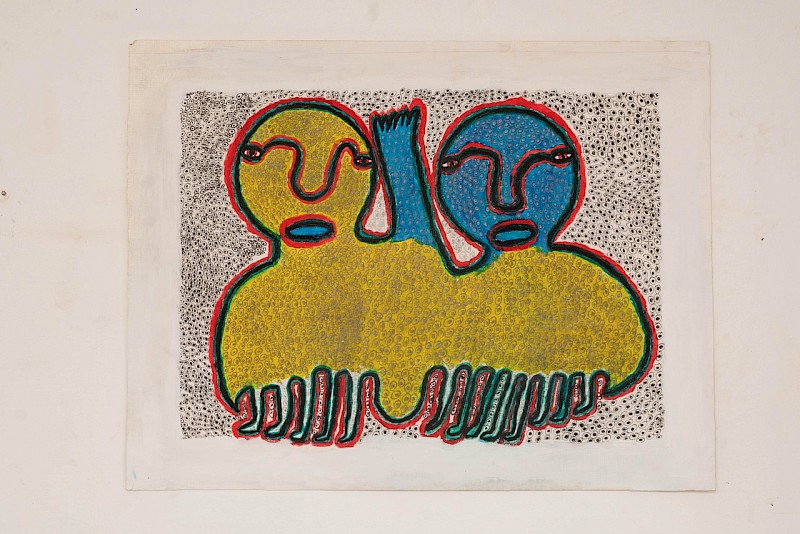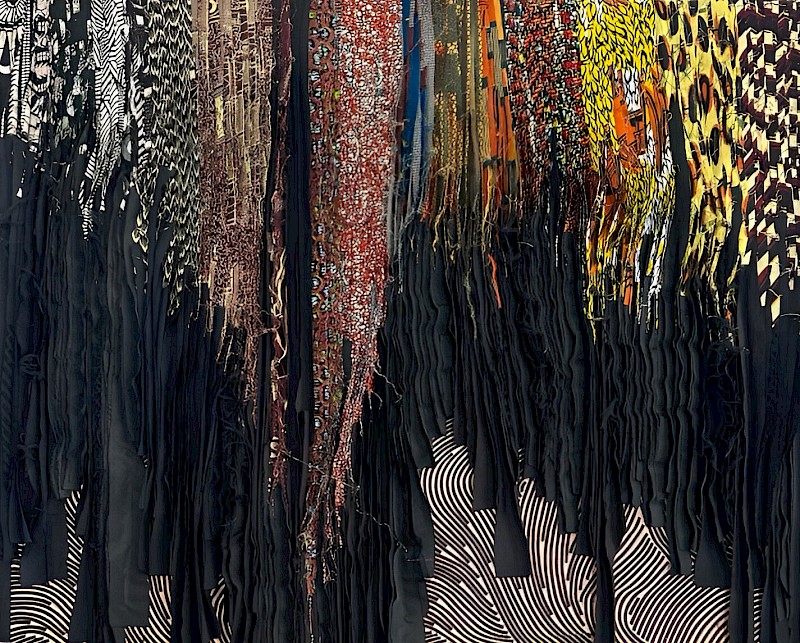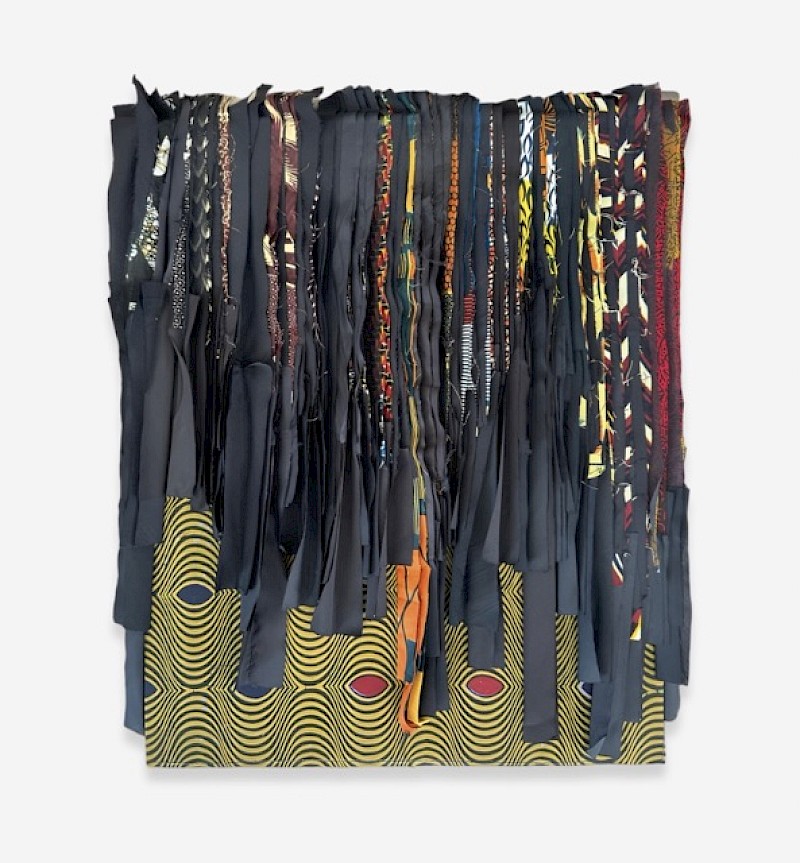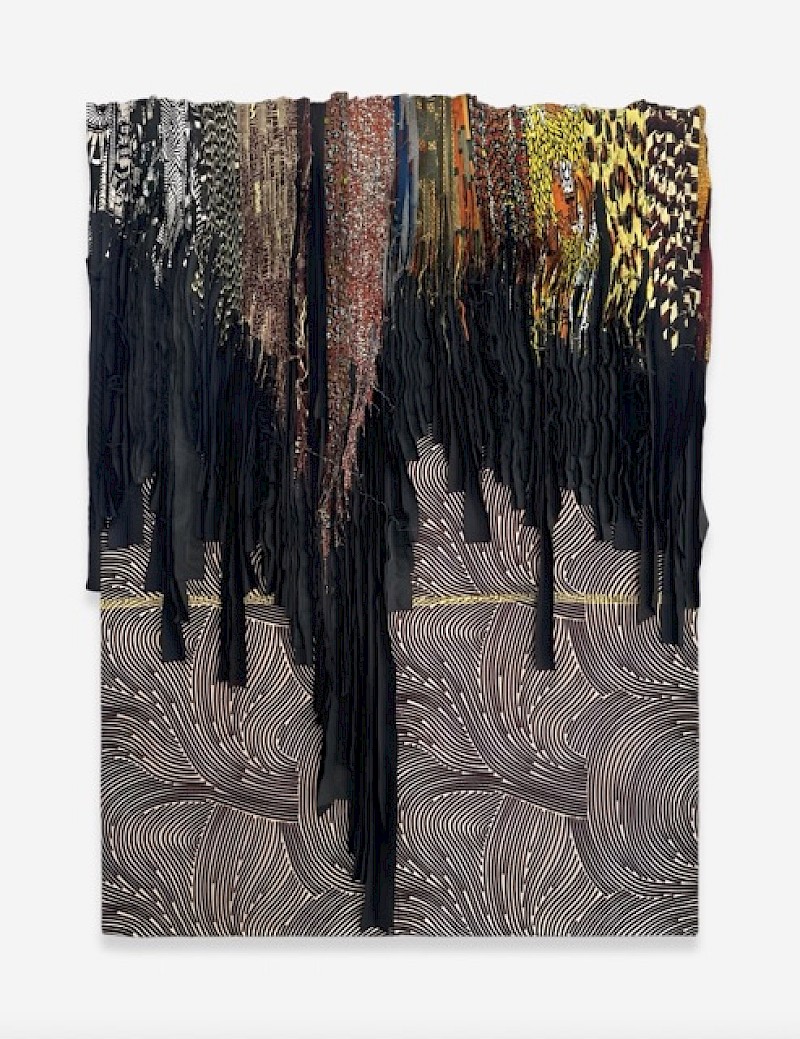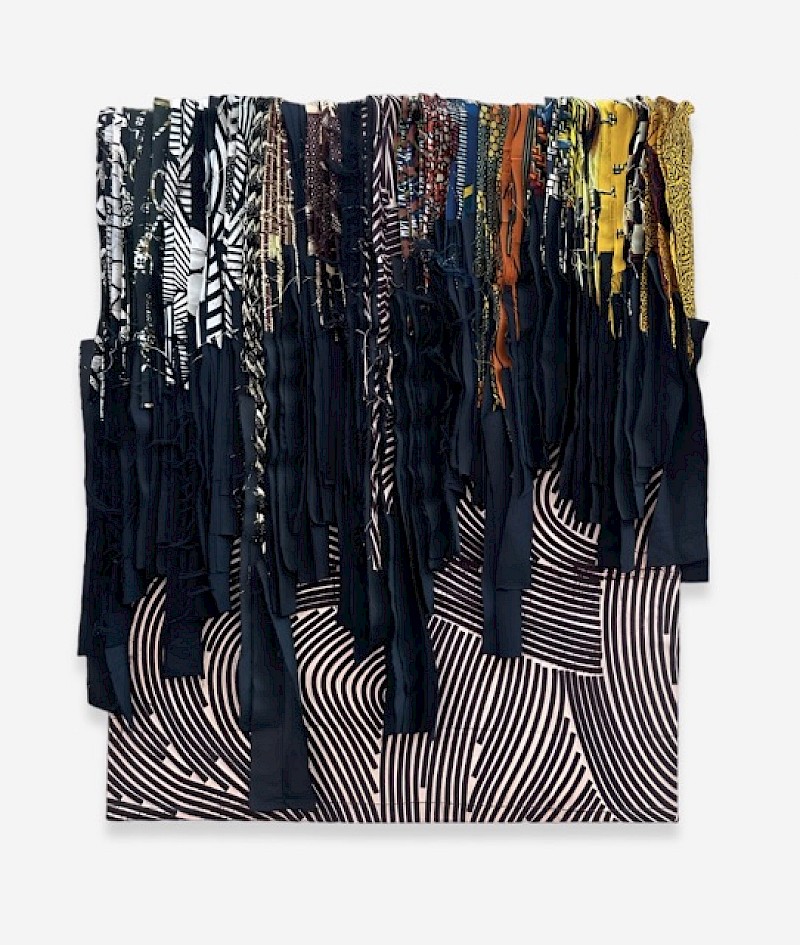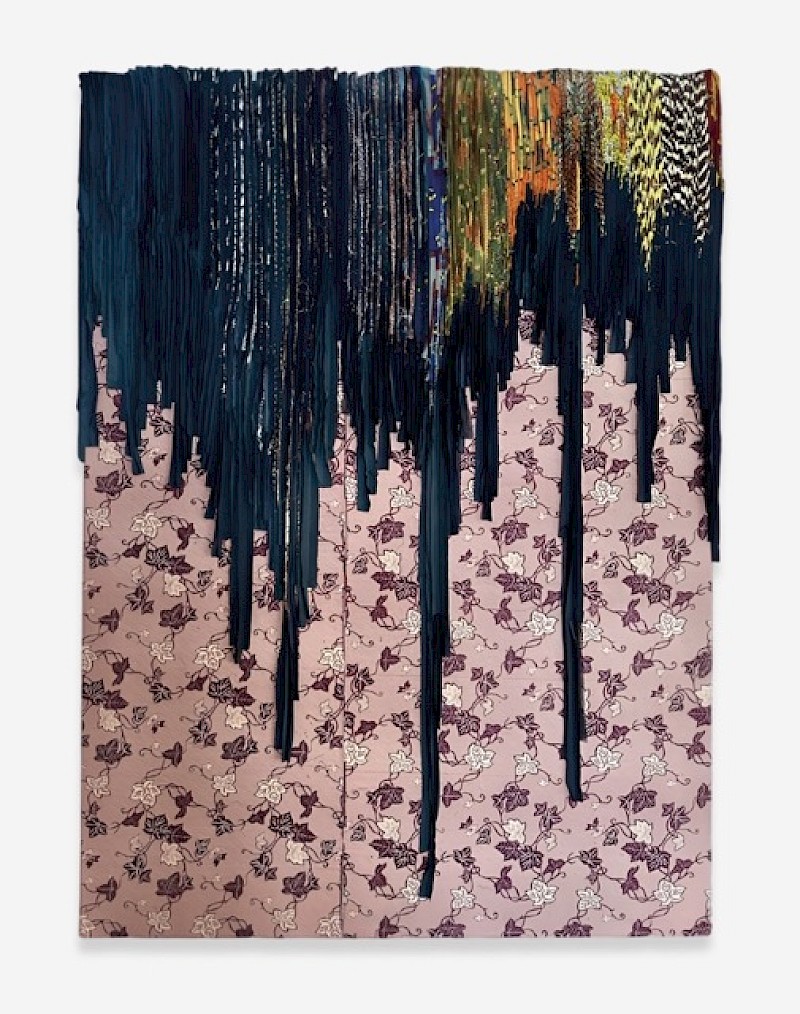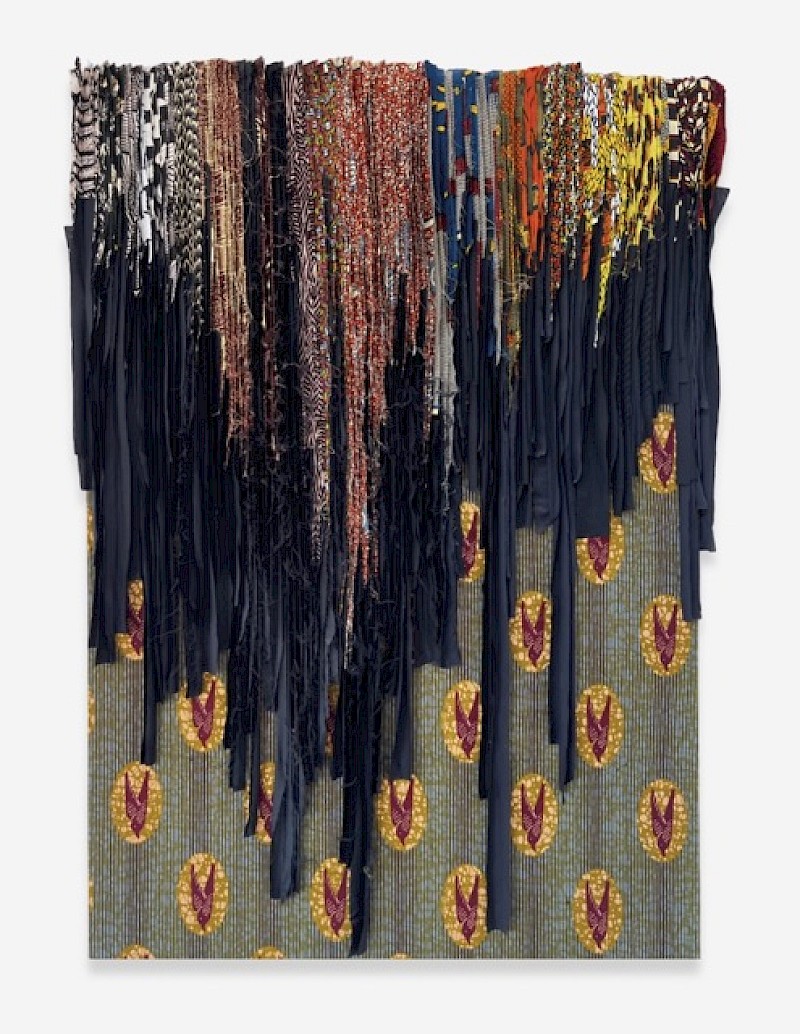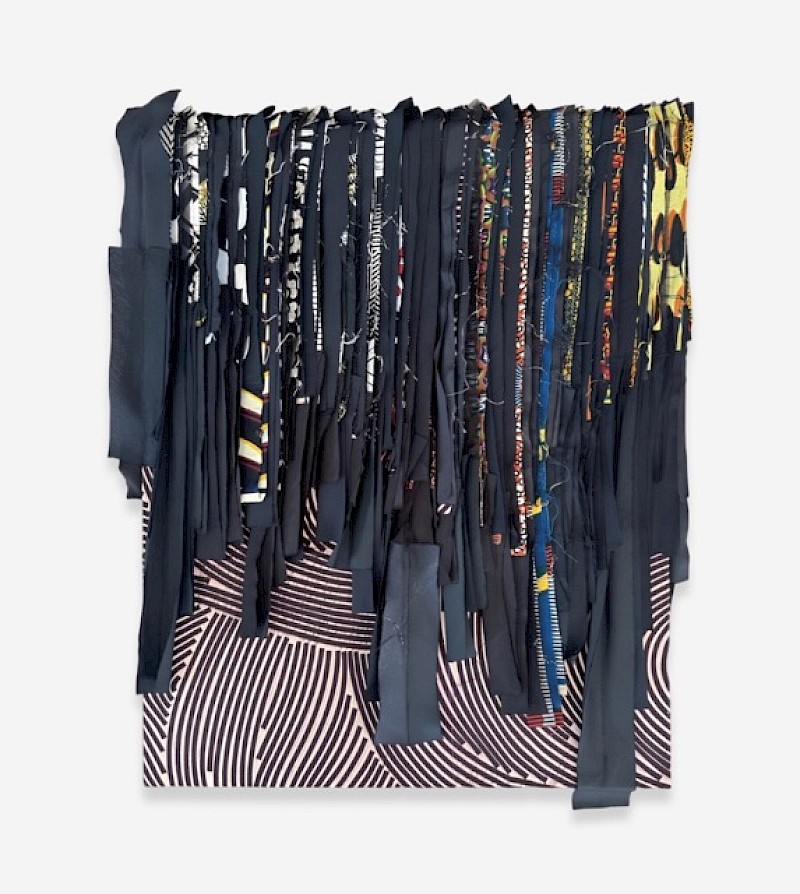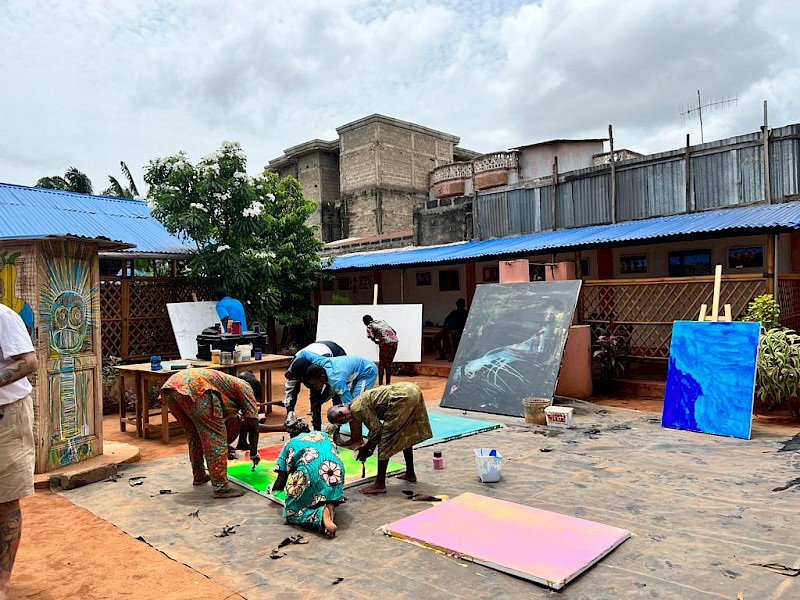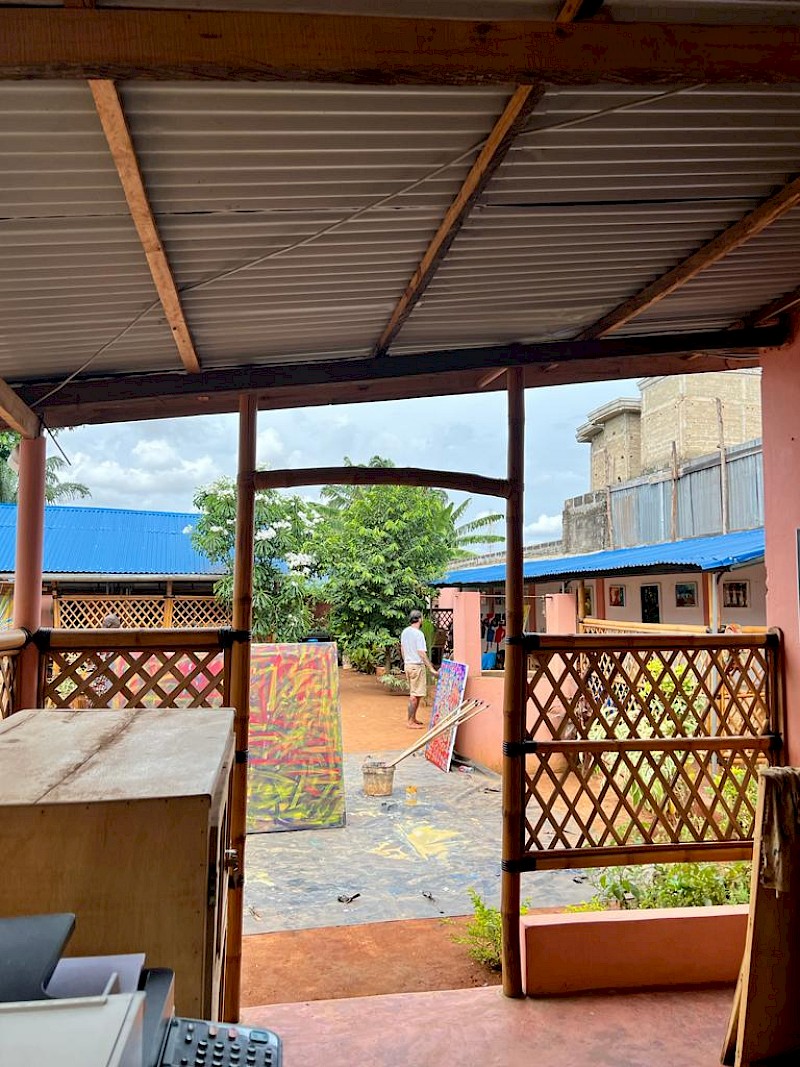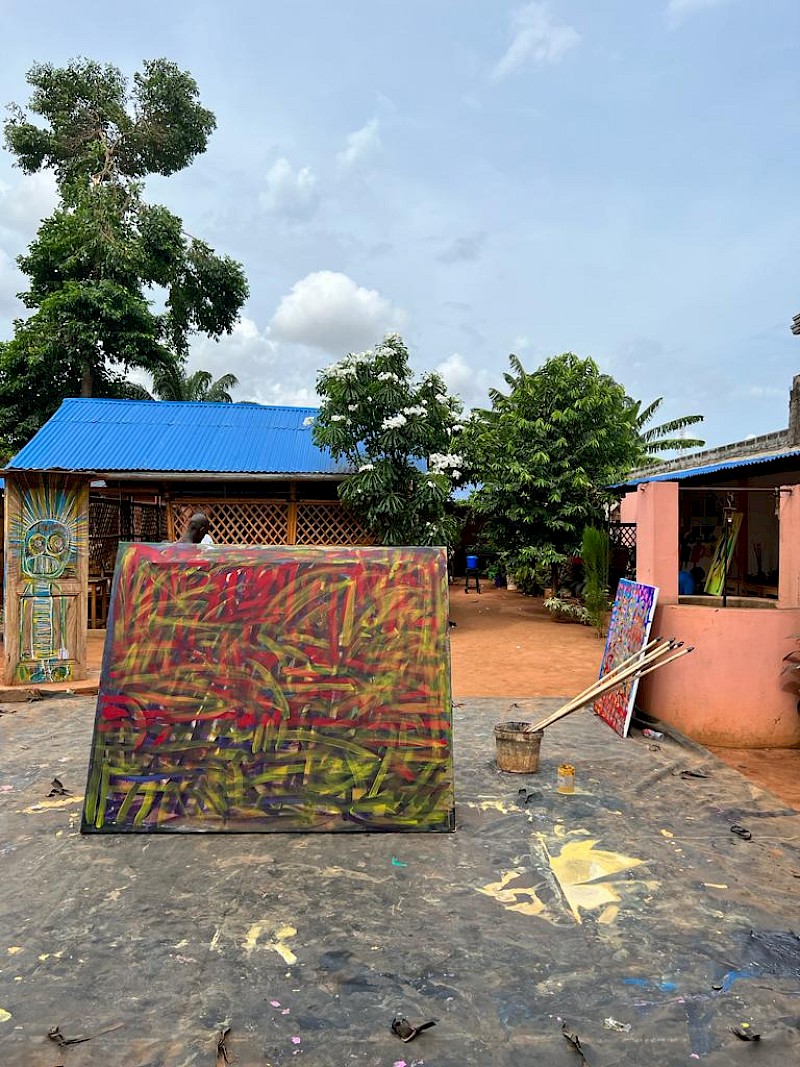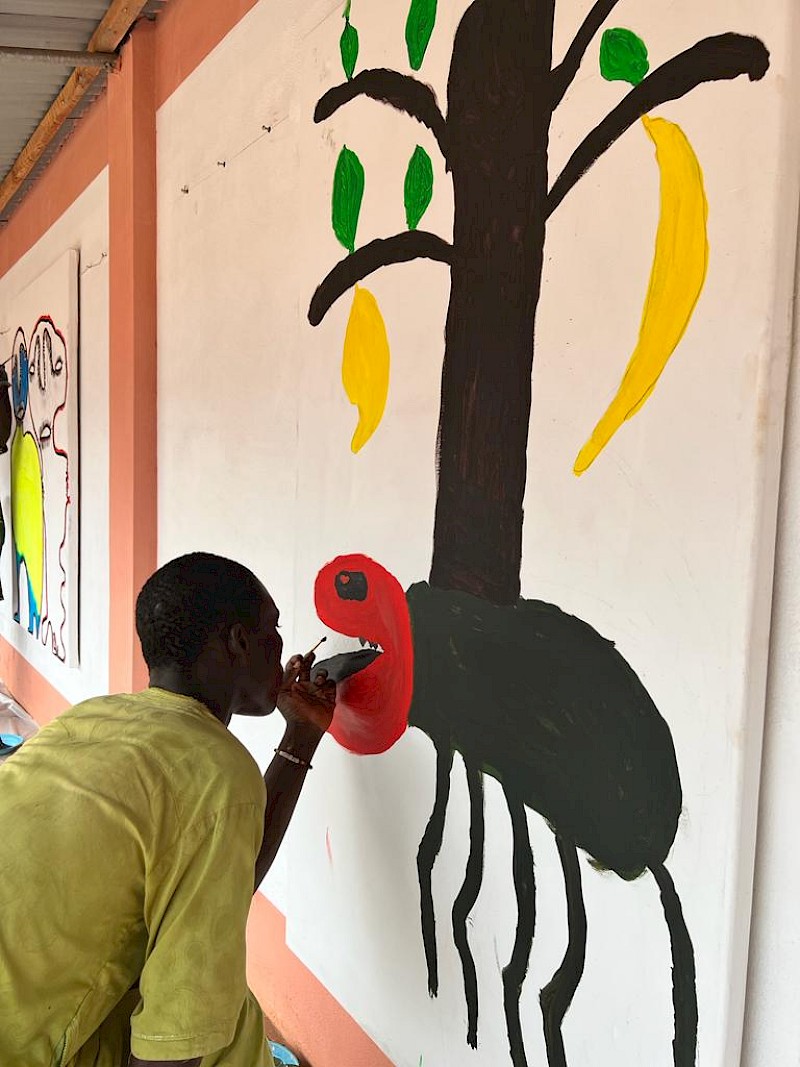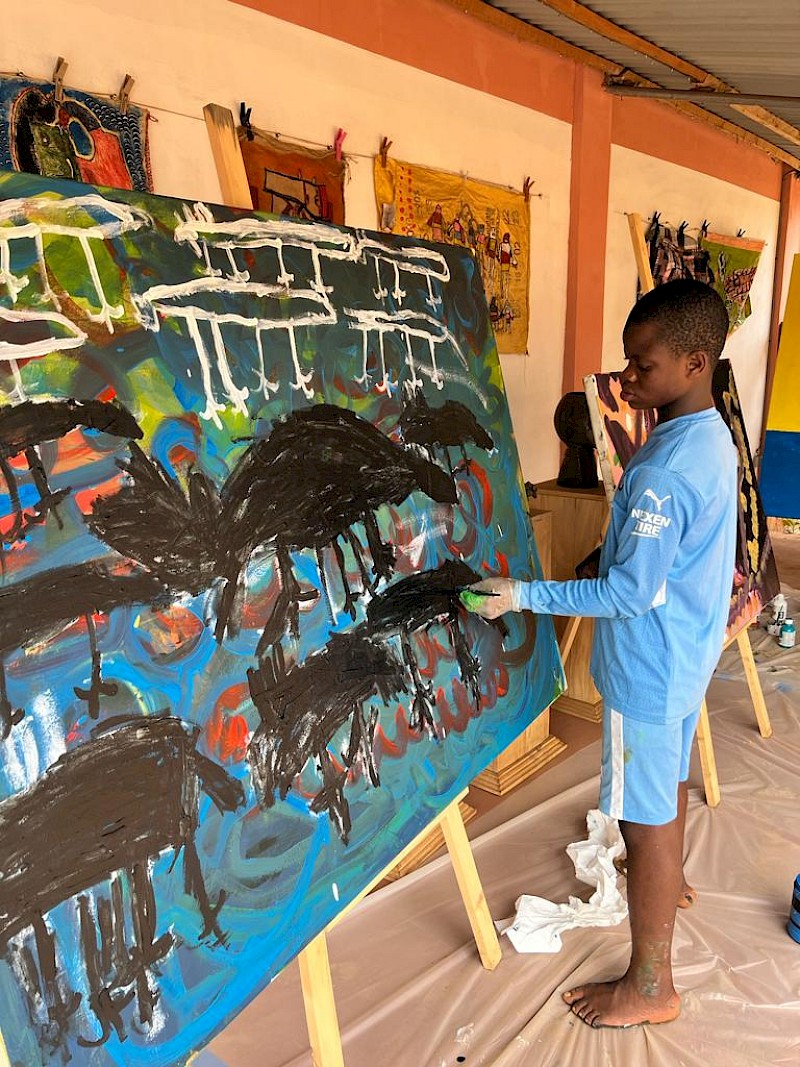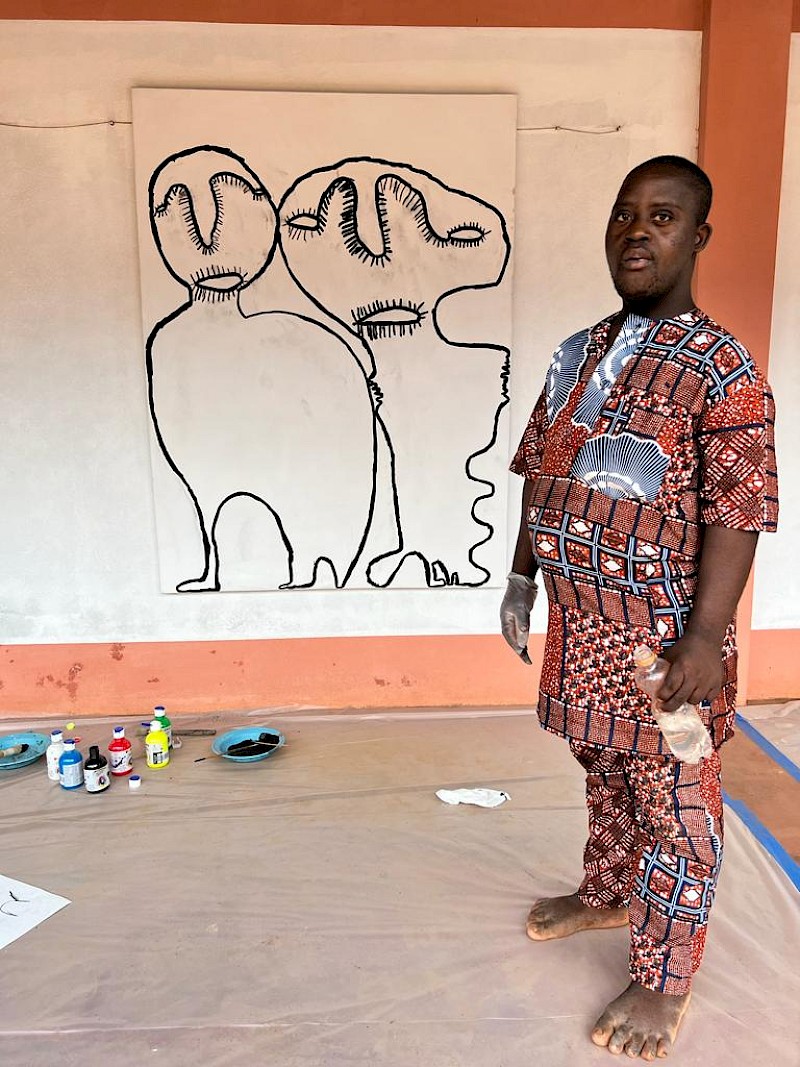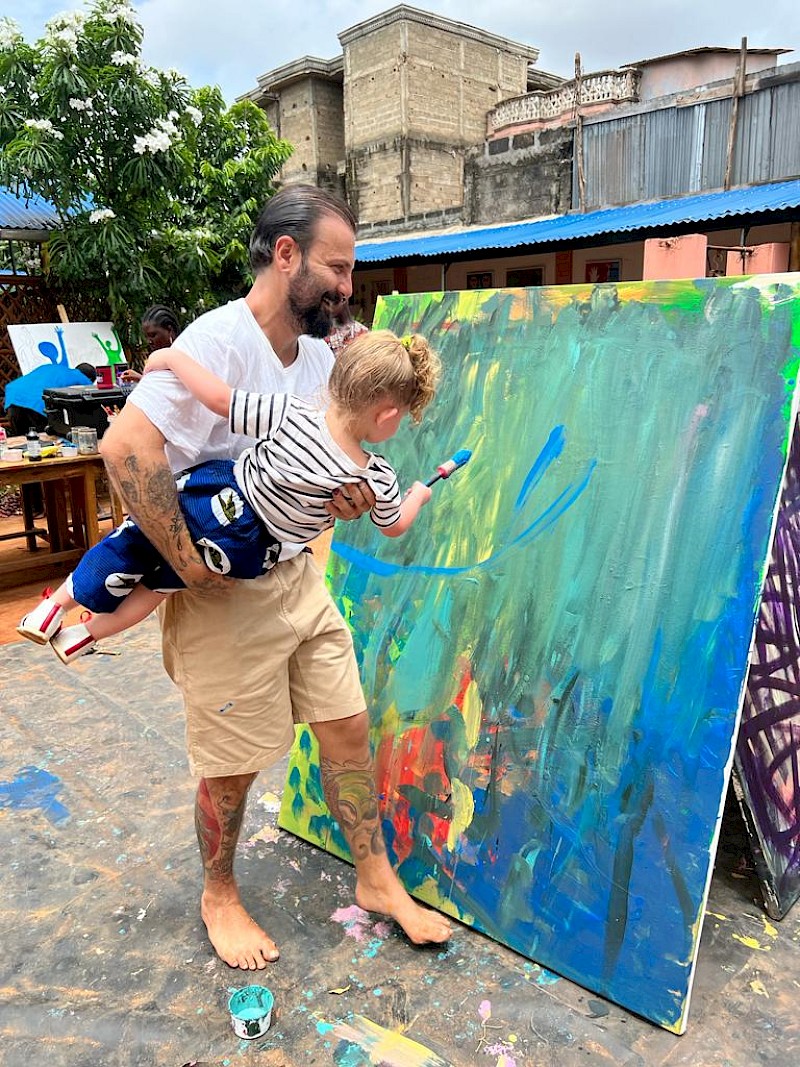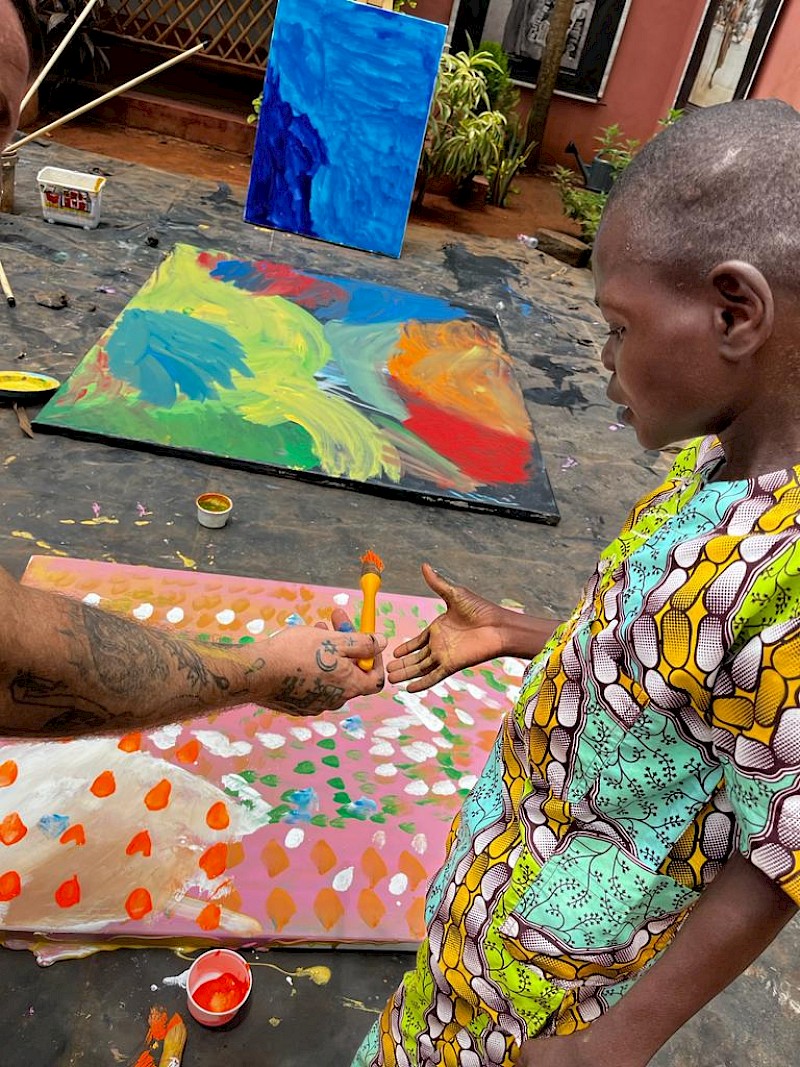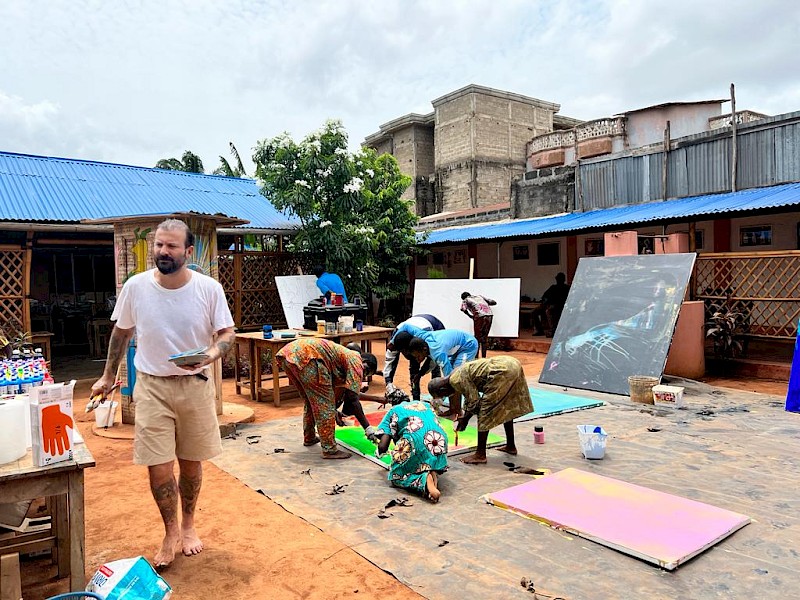–
Everything stood still Francis Agemo
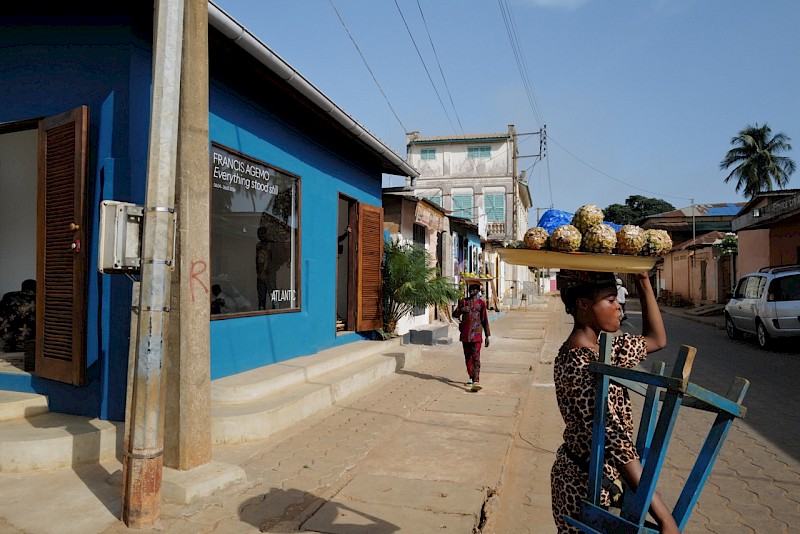
Atlantic is proud to present «Everything stood still», an exhibition by the Nigerian painter and sculptor Francis Agemo.
For his third exhibition in Benin, the artist has chosen his most-liked support: wood. But this time he works in a new different way. Same as many other African artists, Agemo finds his material around him, it is in the streets and in building sites that he collects wooden boards. He puts them together to create «paintings» made of different elements that he sculpts and carves meticulously whenever the boards do not convey the desired effect, or if he wishes to accentuate a certain characteristic. He takes advantage of their unusual shapes, perforations or fractures.
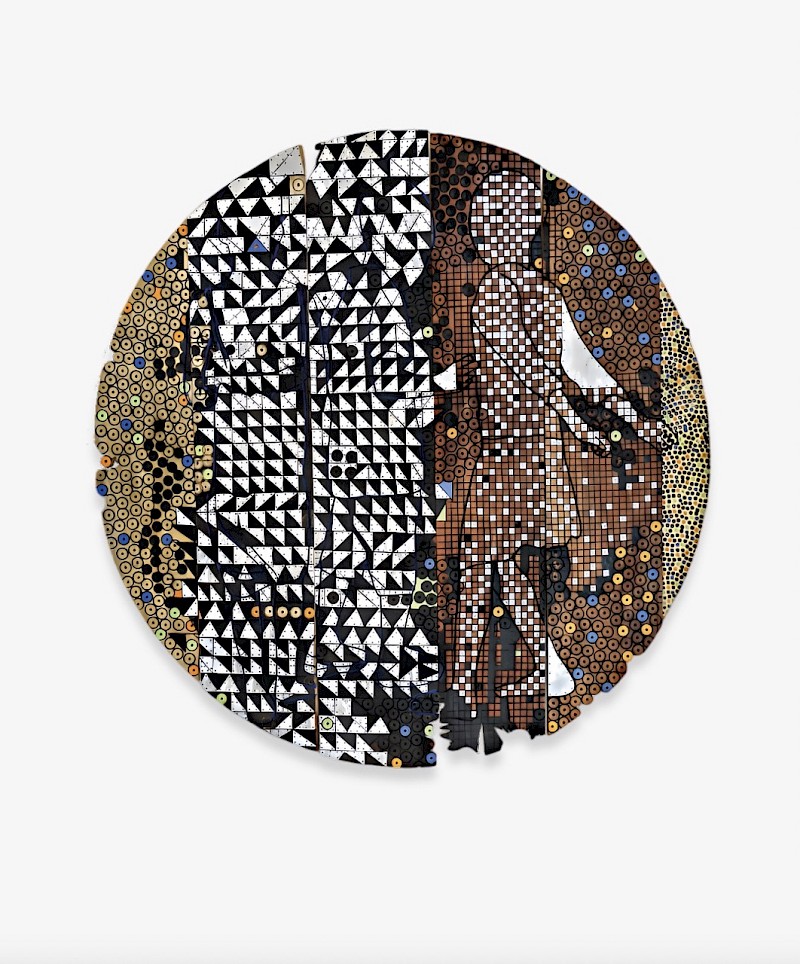
Into the future, 2024, Aluminium and acrylic on wood panel, 150 x 3 cm
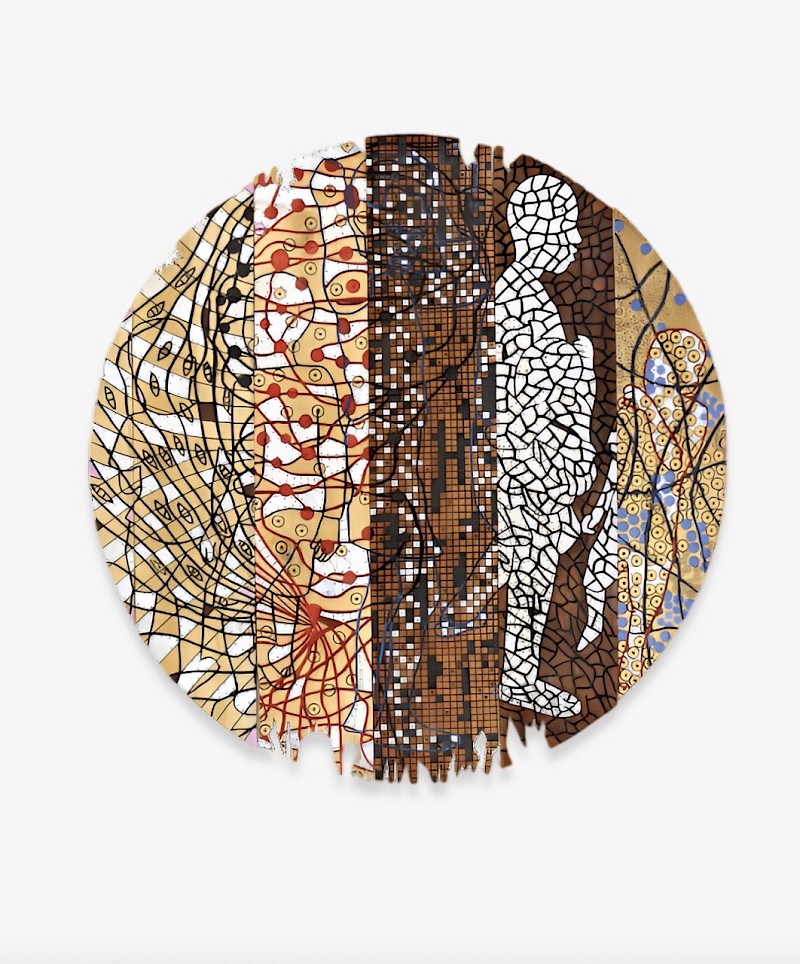
I thought I could, 2024, Aluminium and acrylic on wood panel, 150 x 3 cm
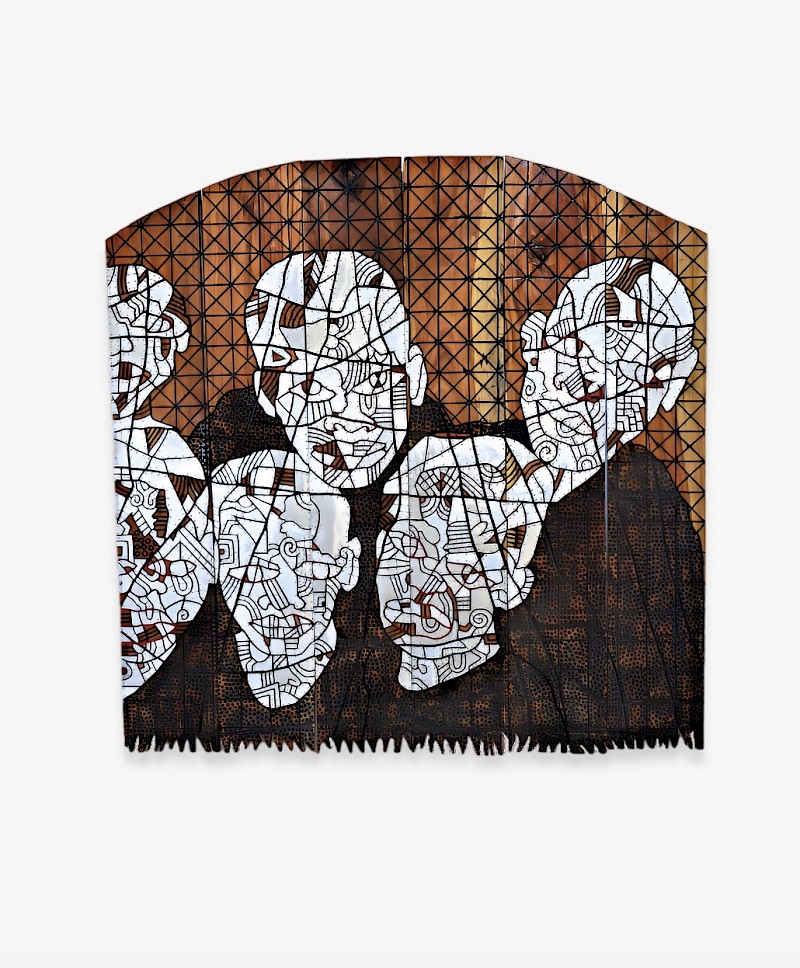
Once together, 2023, Aluminium and acrylic on wood panel, 150 x 150 x 3 cm
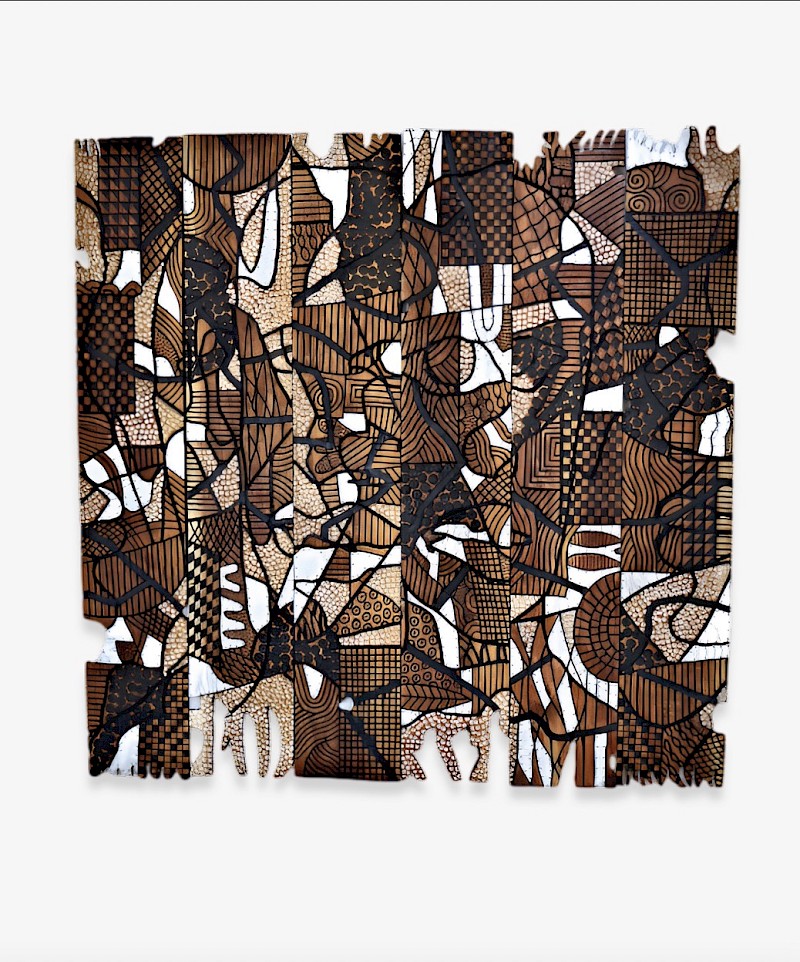
Hidden truth (beast), 2023, Aluminium and acrylic on wood panel, 150 x 150 x 3 cm
Wooden boards were a practical choice, they are everywhere and easy to access. Agemo sees yet another advantage in them: they can be detached and therefore the works can be easily transported. Common sense becomes a concept. Another highlight is yet a found material: aluminum cans. The combination of wood and metal recalls the early work of El Anatsui, Ghanaian artist based in Nigeria well-known for his large-scale bottle caps tapestries.
Agemo cuts pieces of aluminum that he nails to the boards, blending its metallic industrial colors with acrylic. He thus creates his own palette. If in his early paintings, colors were vibrant, dazzling, joyful and associated with portraits or daily life scenes, this is no longer the case in the new series he presents in Ouidah. Agemo explains, «I toned down colors to highlight wood’s organic hues, subtleties, and grain. My intention was to bring natural beauty to light, and this makes my pieces more powerful».
This sort of aesthetic sobriety does not result from artistic experimentation but from a personal journey. Francis Agemo’s works are no longer about the village, traditions or ancient rituals but rather about Lagos, a city he often visits which population is estimated in 20 million people. A city where wealth mixes with poverty, millionaires cross path with hustlers (street-smart boys in search of modest jobs and a better life). The artist is concerned for these young people left on their own because the parents themselves are trying to find a way to survive. Money! « There’s a lot in Nigeria but not for everyone. For a year now, we’ve had a new government, we’ve gone from one political party to another but nothing has changed for the people, life was hard and it’s still hard! », summarizes the artist. Hence the title « Everything stood still ».
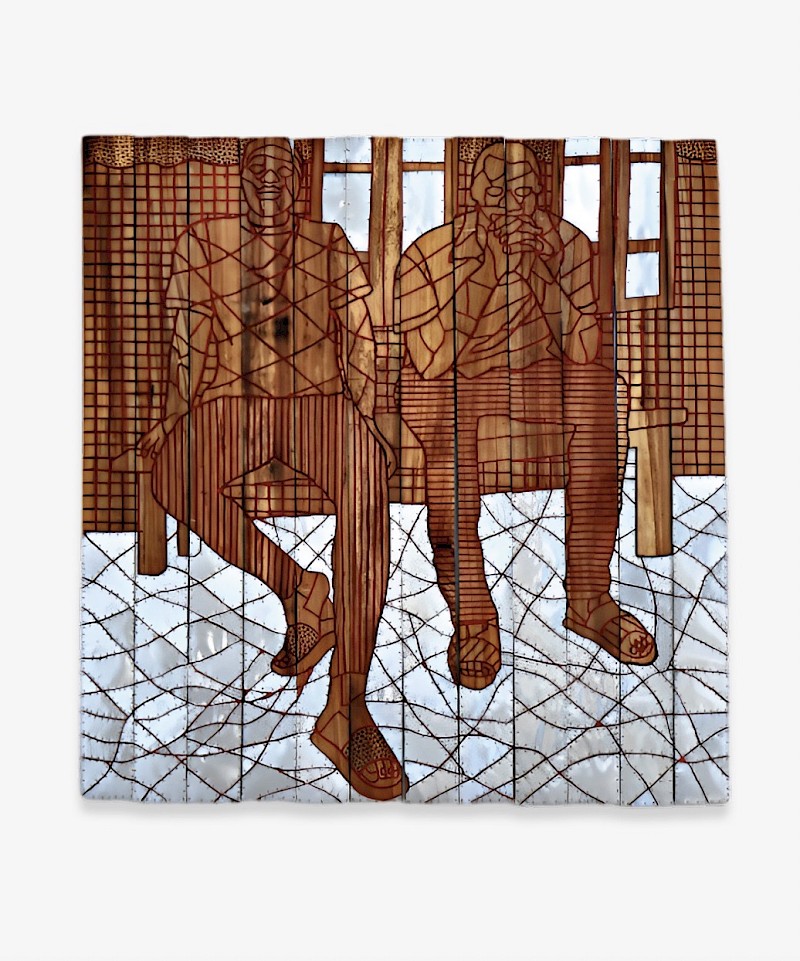
Thinking of the next, 2023, Aluminium and acrylic on wood panel, 150 x 150 x 3 cm
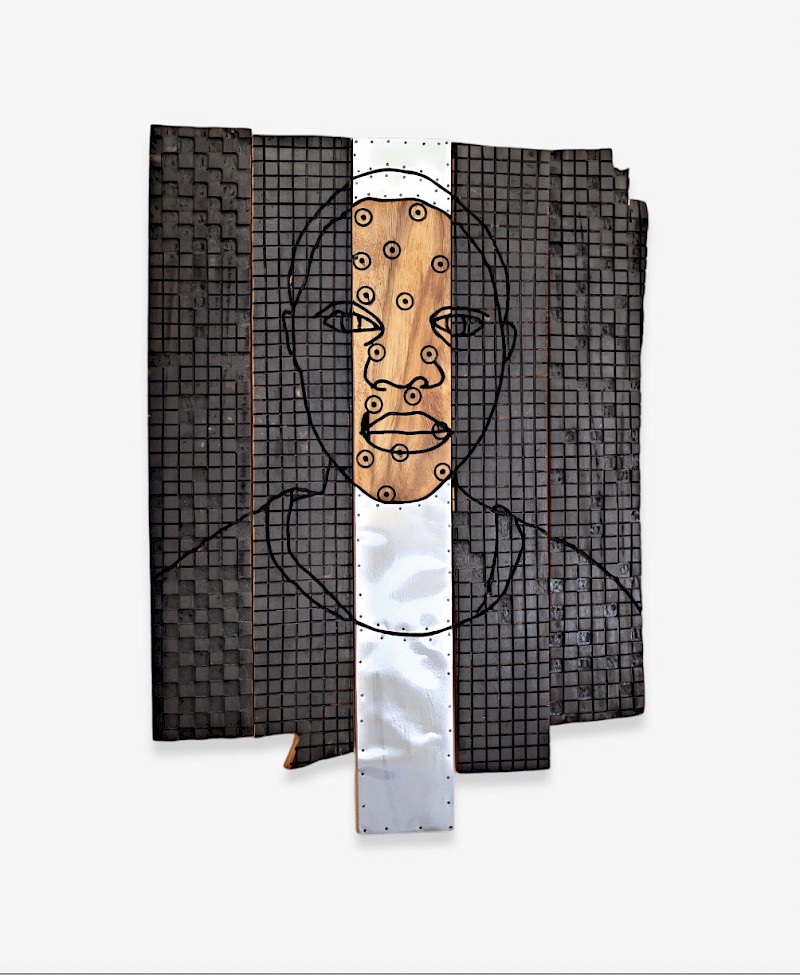
Citizen, 2024, Aluminium and acrylic on wood panel, 80 x 65 x 3 cm
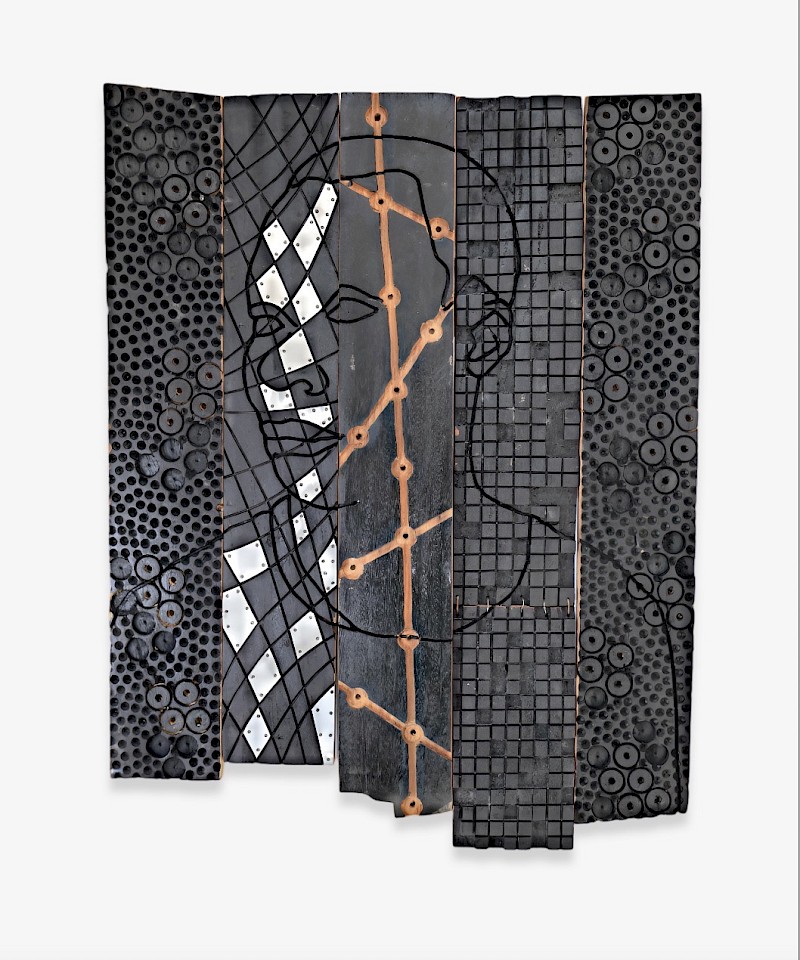
Citizen (5), 2024, Aluminium and acrylic on wood panel, 80 x 60 x 3 cm
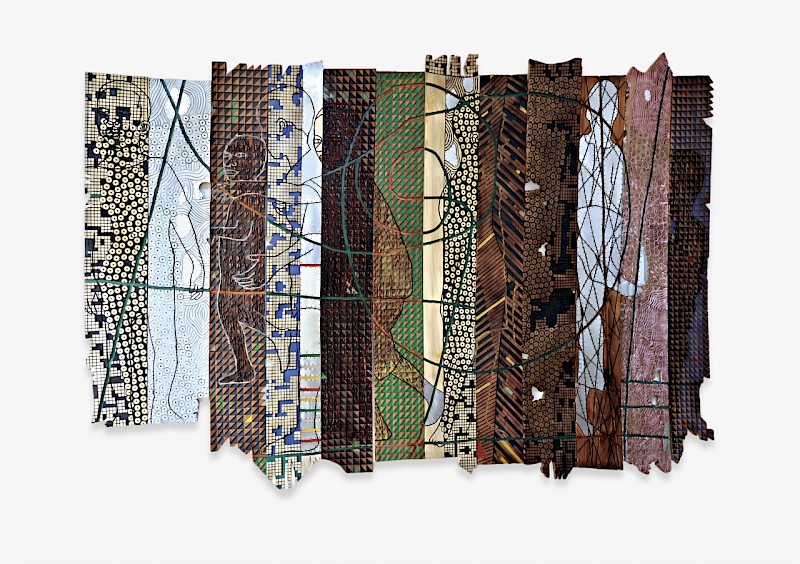
Suffering and happy, 2024, Aluminium and acrylic on wood panel, 300 x 200 x 3 cm
His message has become social and political, and his art is both a claim and a denunciation: corruption, neglect, growing and increasingly shocking inequalities in a rich, oil-producing country where insecurity is rife and kidnappings are commonplace. Agemo has a power generator in his studio which is essential in cities where power blackouts are frequent. “No constant energy supply, kidnappings, crime, security problems and many other things ruin people’s lives, there is no point in pretending the opposite, we live in darkness”. Nevertheless, his works convey some sort of lightness. As we study them, figures emerge and blend in the surrounding abstraction. Same as the people left out and ignored by society. Francis Agemo wants to make them real. «It is important for me to shine a light on them because we don’t see them; I want them to be visible because they are now invisible».
Francis Agemo was born in Nigeria in 1986. He lives and works in Badagry, a coastal town near Lagos. He is a self-taught painter. He studied Art at Delta State University where he majored in Sculpture in 2008. His work has been exhibited particularly in London, Zanzibar and Morocco at the Marrakech Montresso Art Foundation where he takes part in a residency program since 2022.
